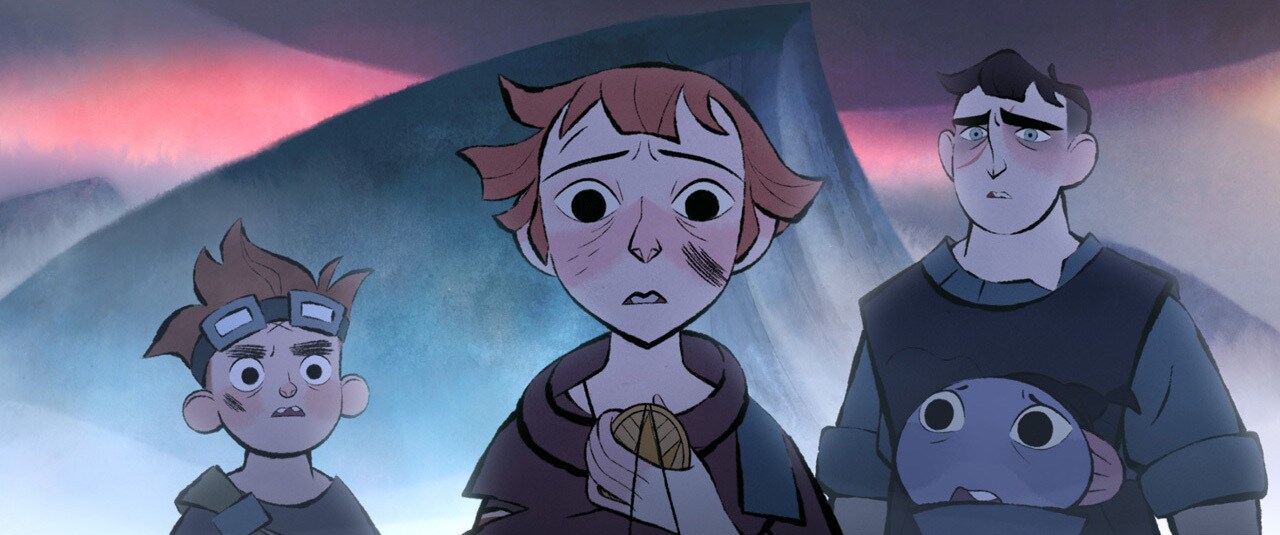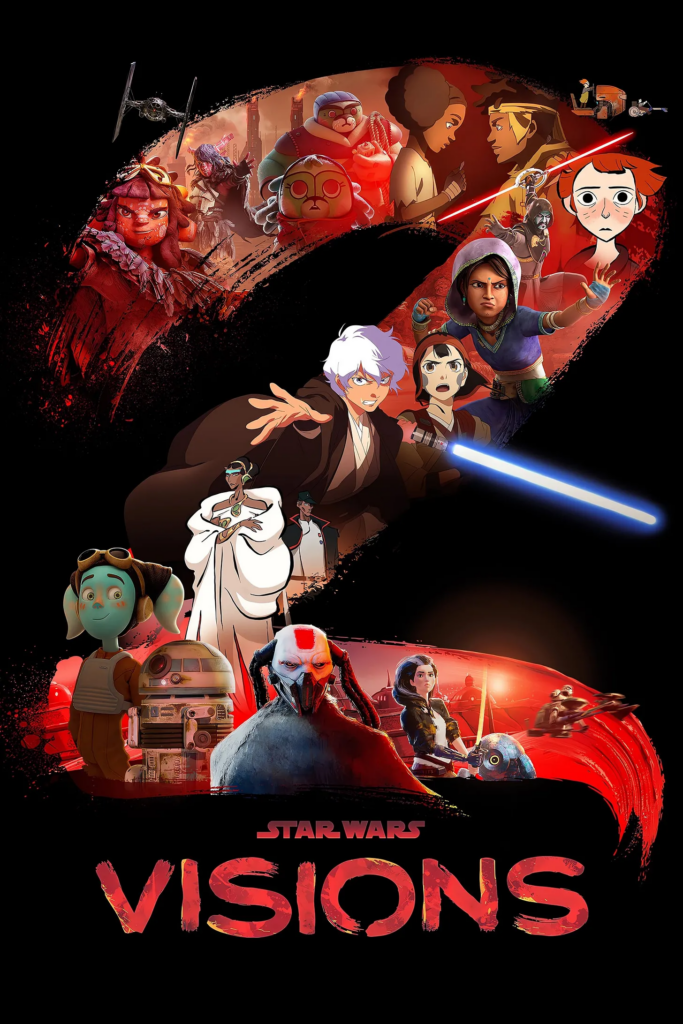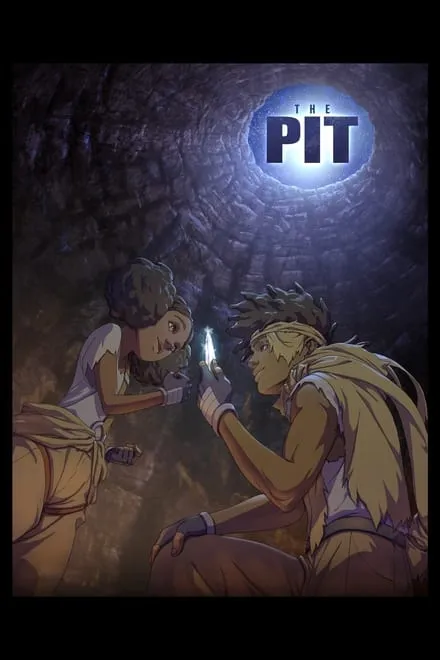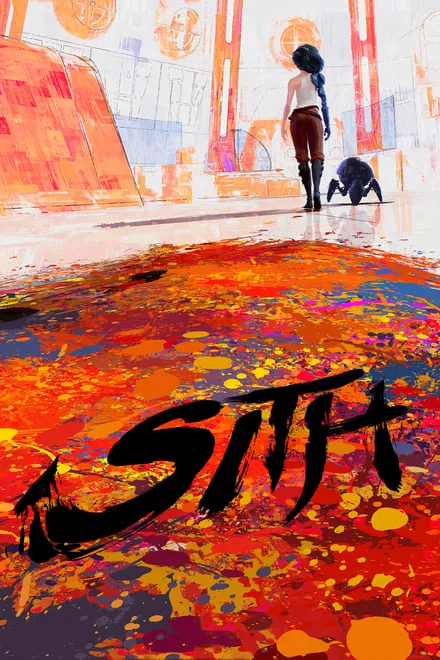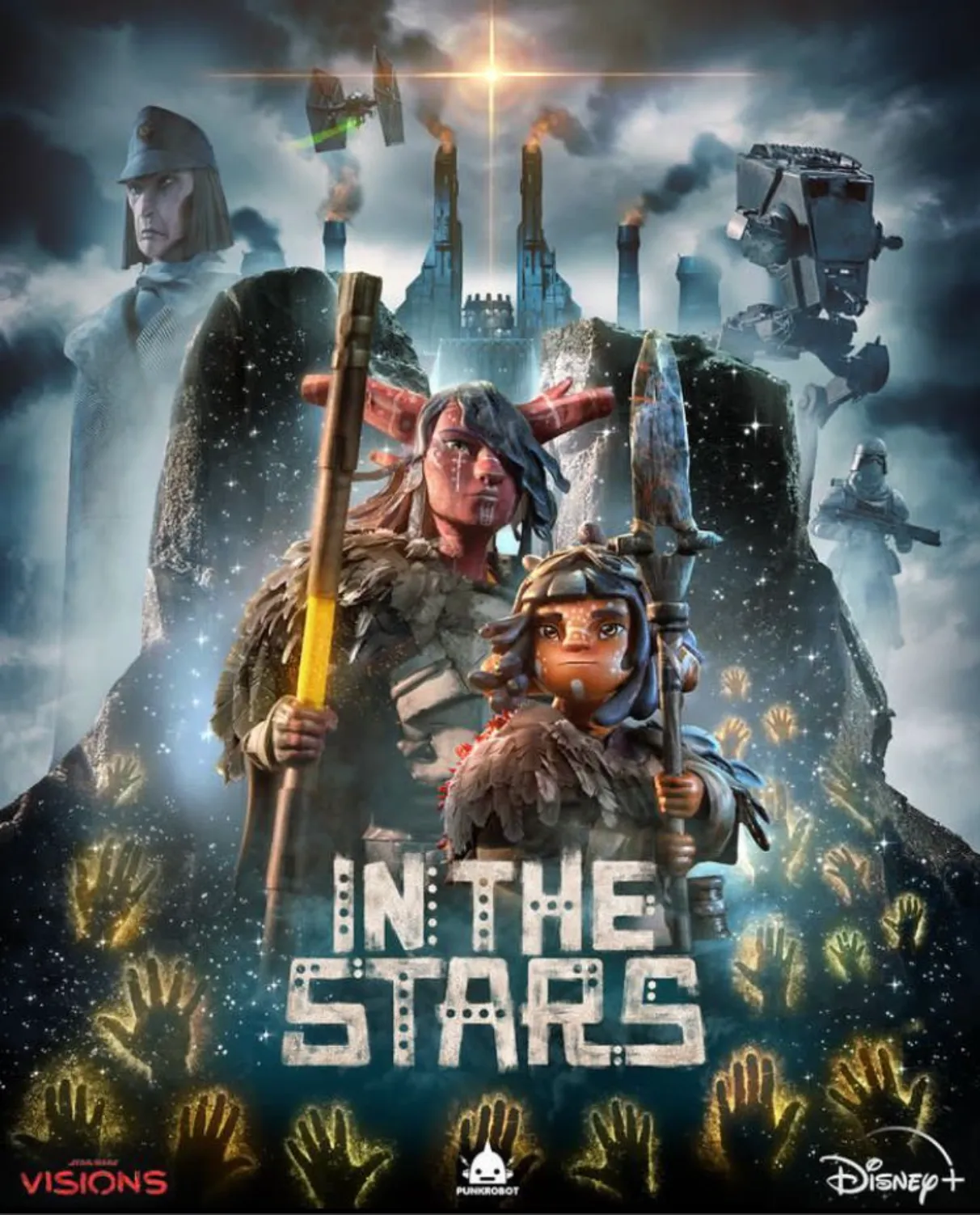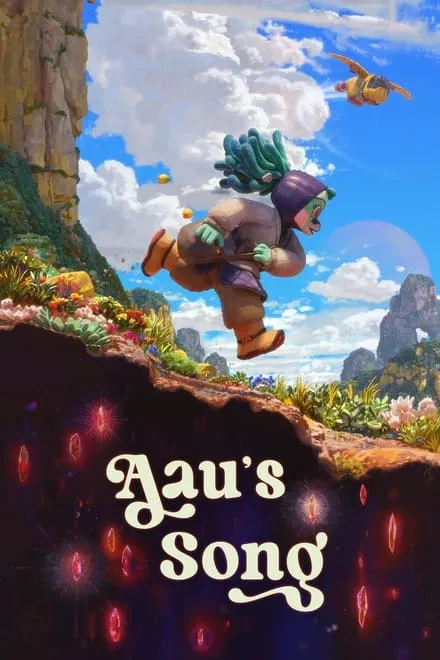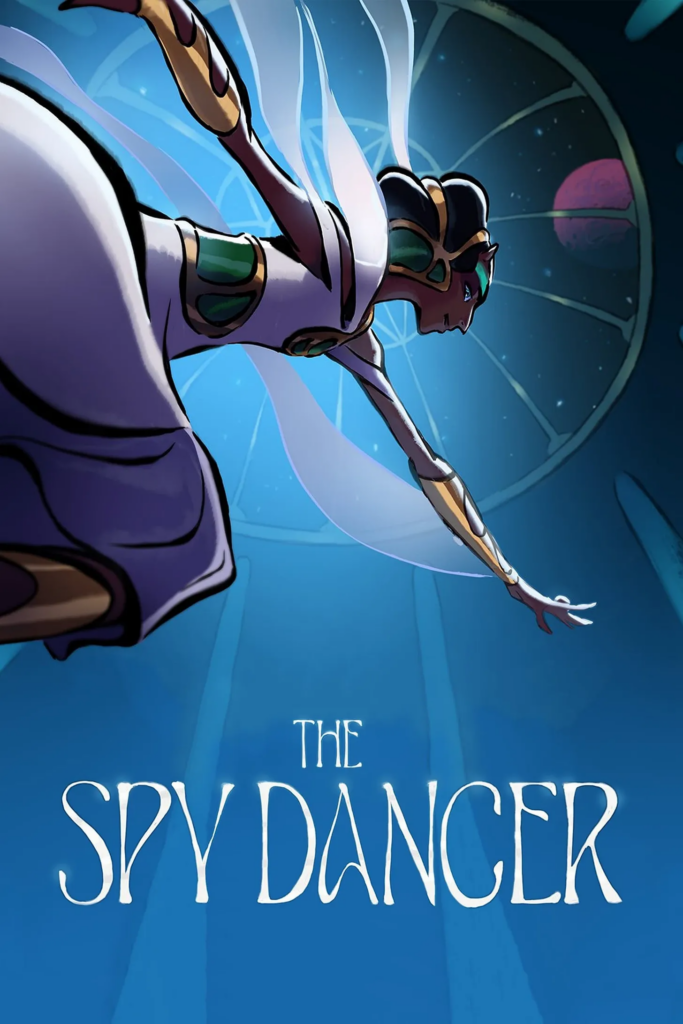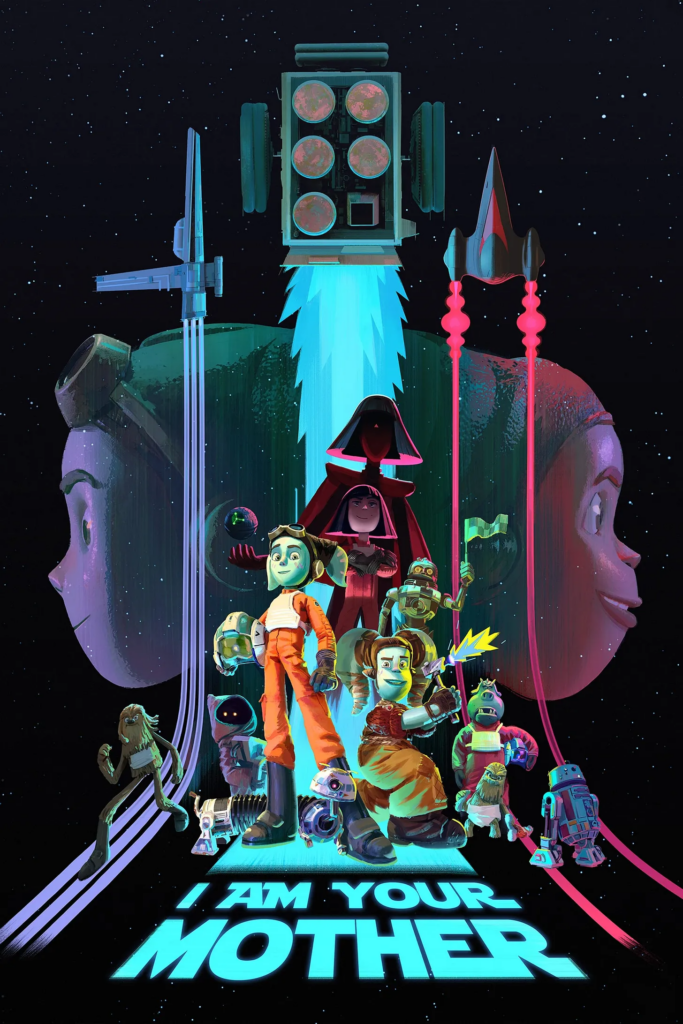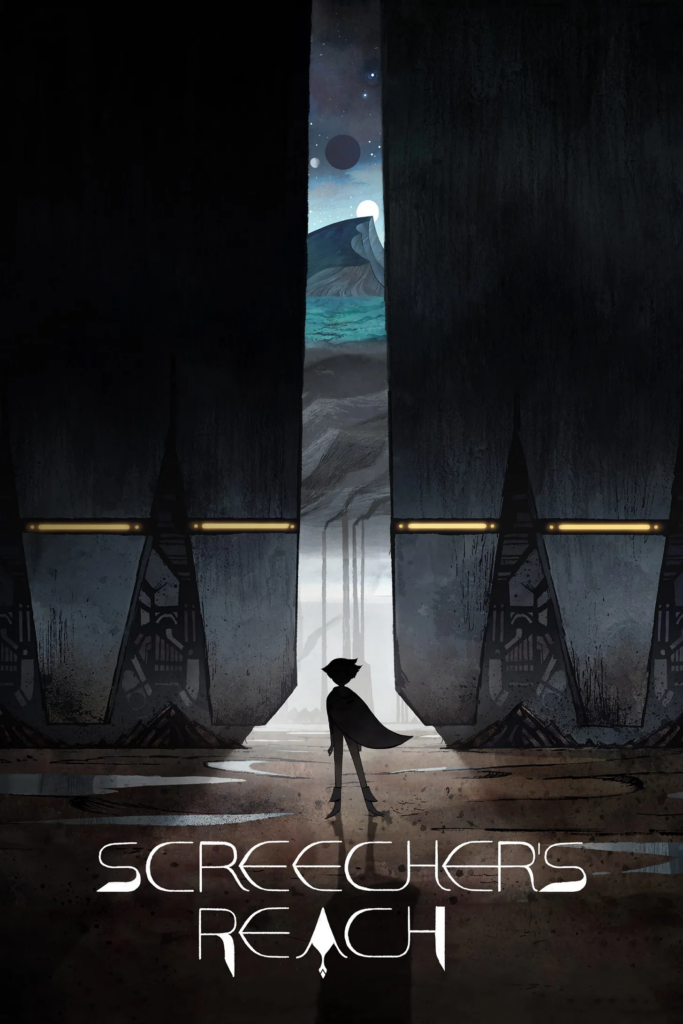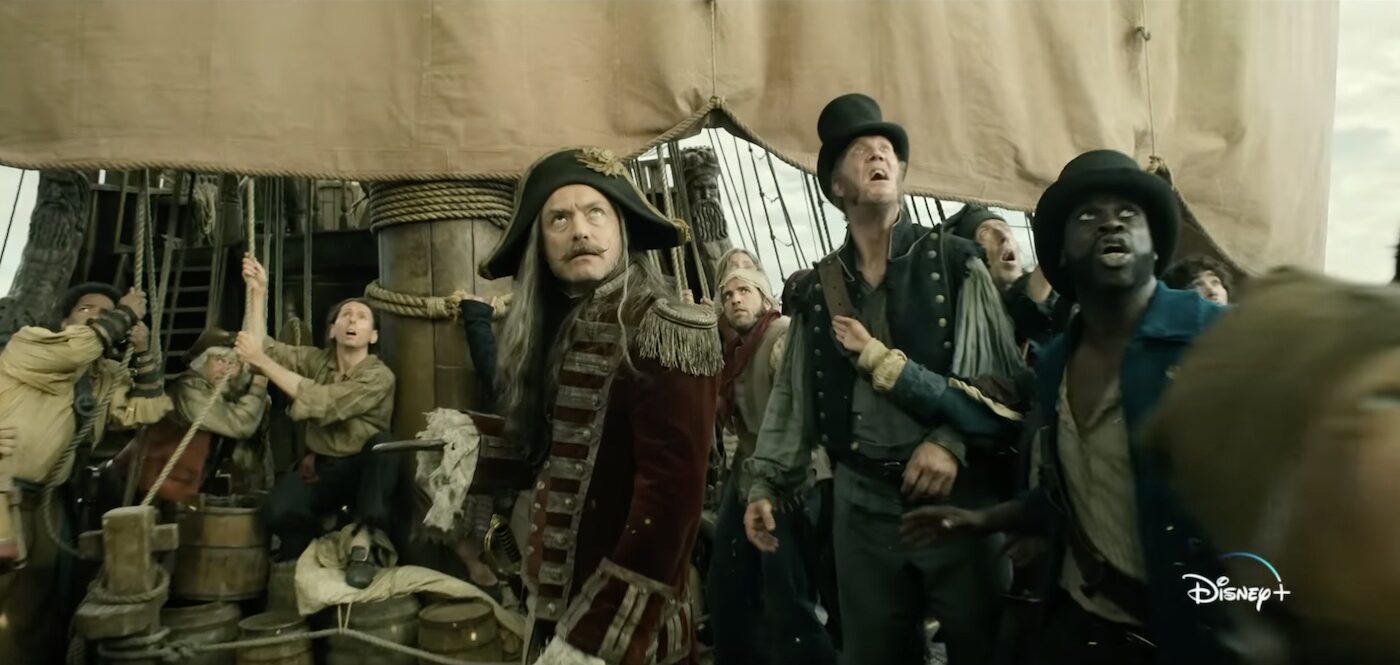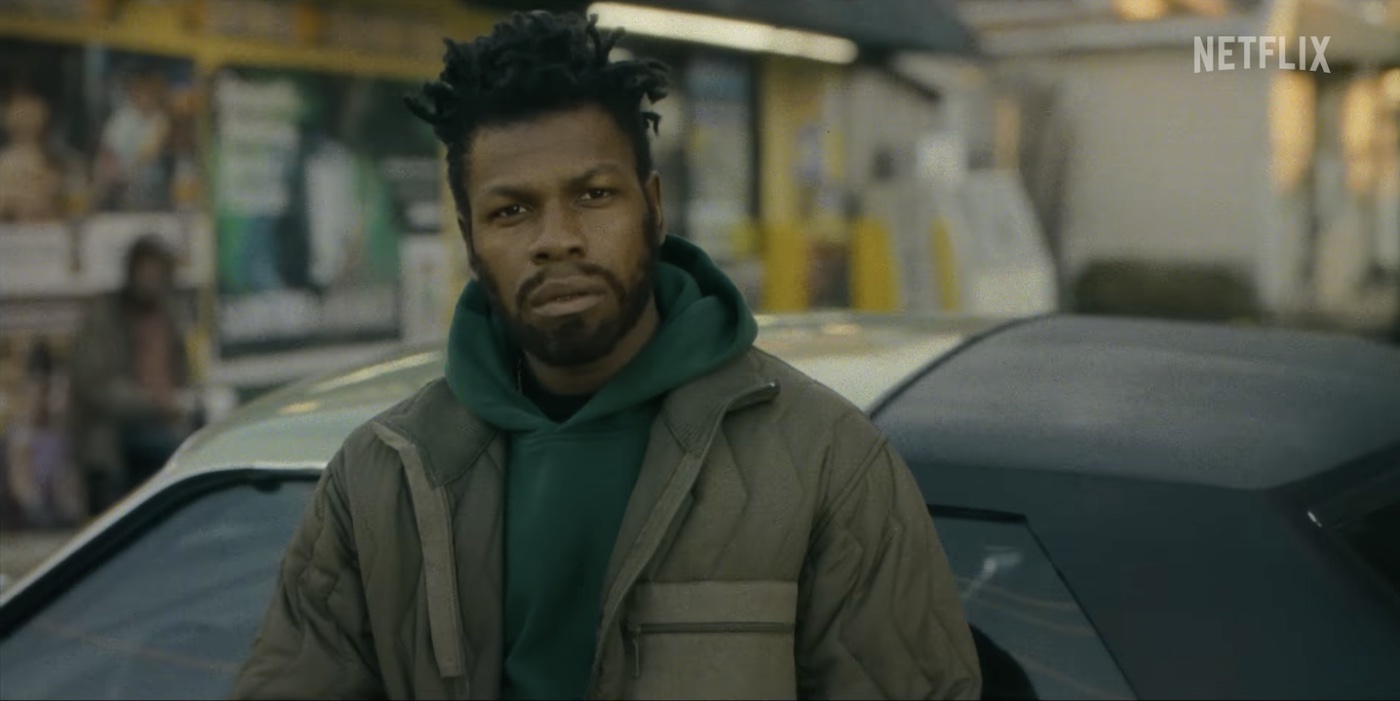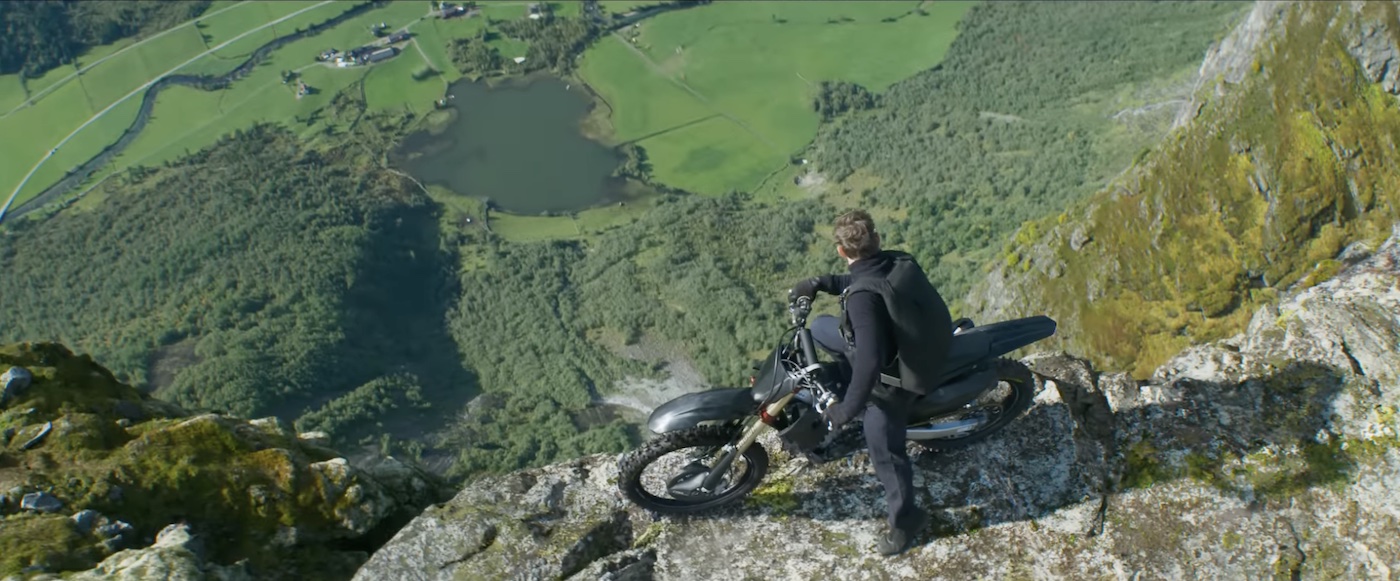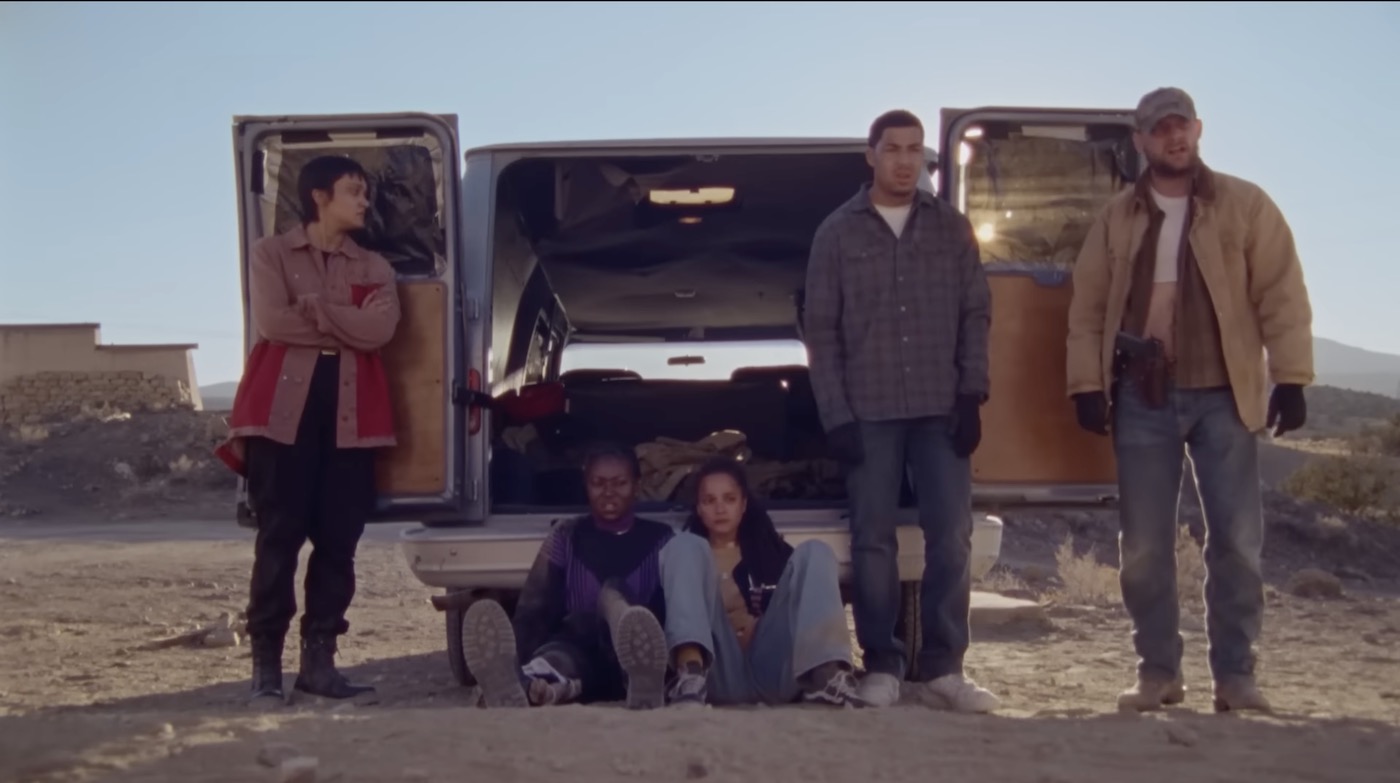Was Christopher Nolan's Oppenheimer inspired by Raiders of the Lost Ark?
This exploration of Christopher Nolan's Oppenheimer is now available for subscribers who support Give Me Some Light over at Substack. It will eventually be published in full here. This post is just a preview — a selection of excerpts from that two-part post.
Excerpt #1:
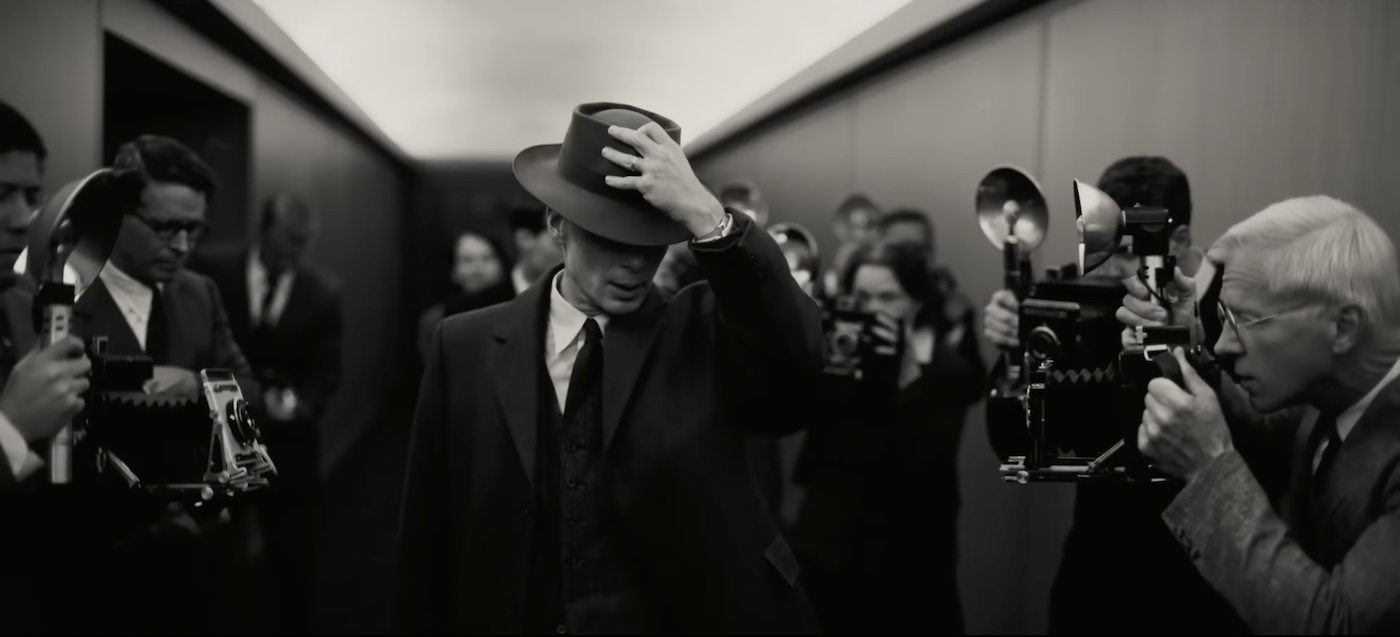
Contrary to popular opinion, no — not all religions are the same. Christopher Nolan’s Oppenheimer is a movie about very religious men, and we can see just what a difference their chosen religions make — for themselves, for their communities, for the world.
Before I go on, I should clarify my terms. When I refer to “religion” in this review, I’m talking about the beliefs that shapes a believer’s values, guide their decisions, and influence their practices and routines. As Bob Dylan famously sings, “You gotta serve somebody.” The choices that you and I are making this year, this week, this hour — they are influenced by what (and by who) we hold sacred. As my friend and counselor David Dark has wisely said,
We reveal our religion in so many ways every day. It’s in the way we drive during rush hour. The way we dispose of a plastic bottle. The decisions we make about who we date, who we marry, and how we treat them. The way we respond when someone of a different culture moves into the house next door. The way we choose some sources of news over others. The measures we take — or don’t — during a pandemic. The way we spend our time when no one is watching.
The future of the world can turn on one person’s choice in a moment of crisis. In those moments, that person’s beliefs really matter. Do we serve our egos, reputations, and legacies, or do we serve those who are vulnerable and in need? Do we love power, or do we love Love — the “Greater Good”?
I’m speculating here, but David Dark might think of Oppenheimer as an audit — or at least a study — of J. Robert Oppenheimer’s receipts.
Excerpt #2
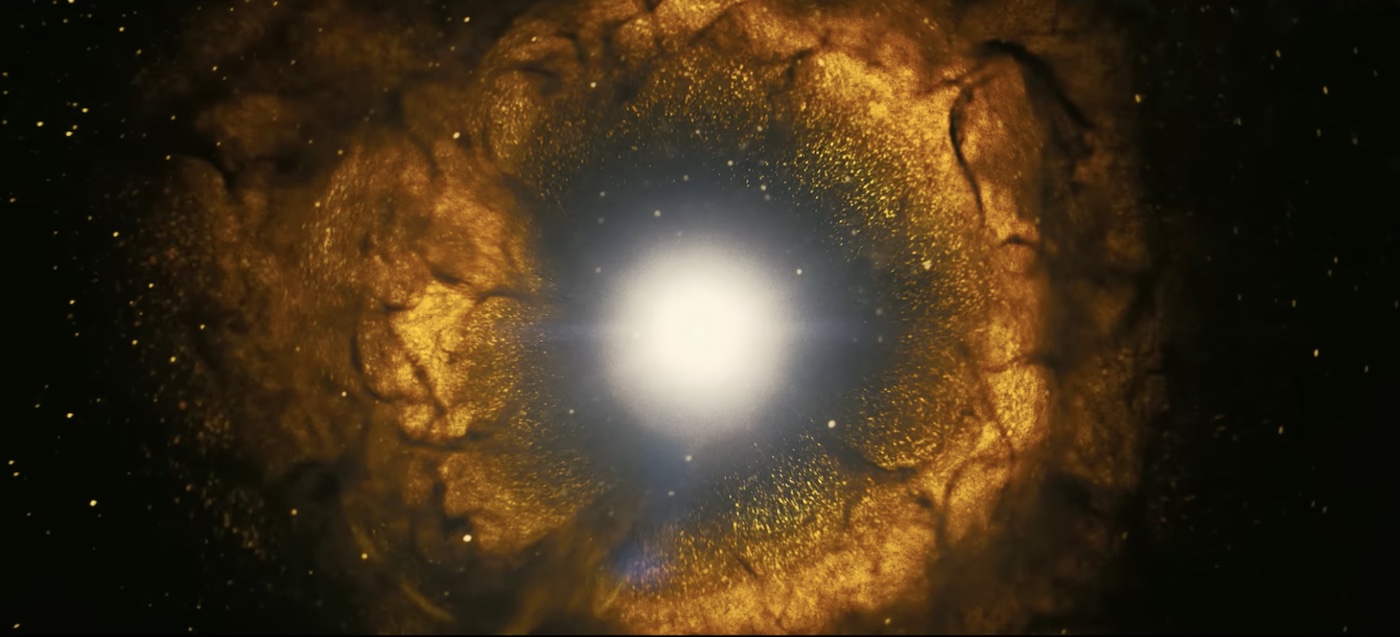
In Nolan’s multi-faceted mise-en-scène, these players — and many more — move about the blazing furnace of Oppenheimer’s busy mind and the flares of his conscience like planets orbiting the sun. Oppenheimer’s religion is evident in his passionate pursuit of knowledge through science, and Nolan illustrates these scientific speculations with abstract images of electrical and chemical reactions that recall the cosmic tangents of Terrence Malick’s The Tree of Life far more than the simplistic gimmicks of Ron Howard’s A Beautiful Mind. They are at once literal illustrations of the forces Oppenheimer is investigating and manipulating, and a visual poetry representing the forces and pressures expanding and contracting within Oppenheimer’s head, heart, and soul.
Excerpt #3
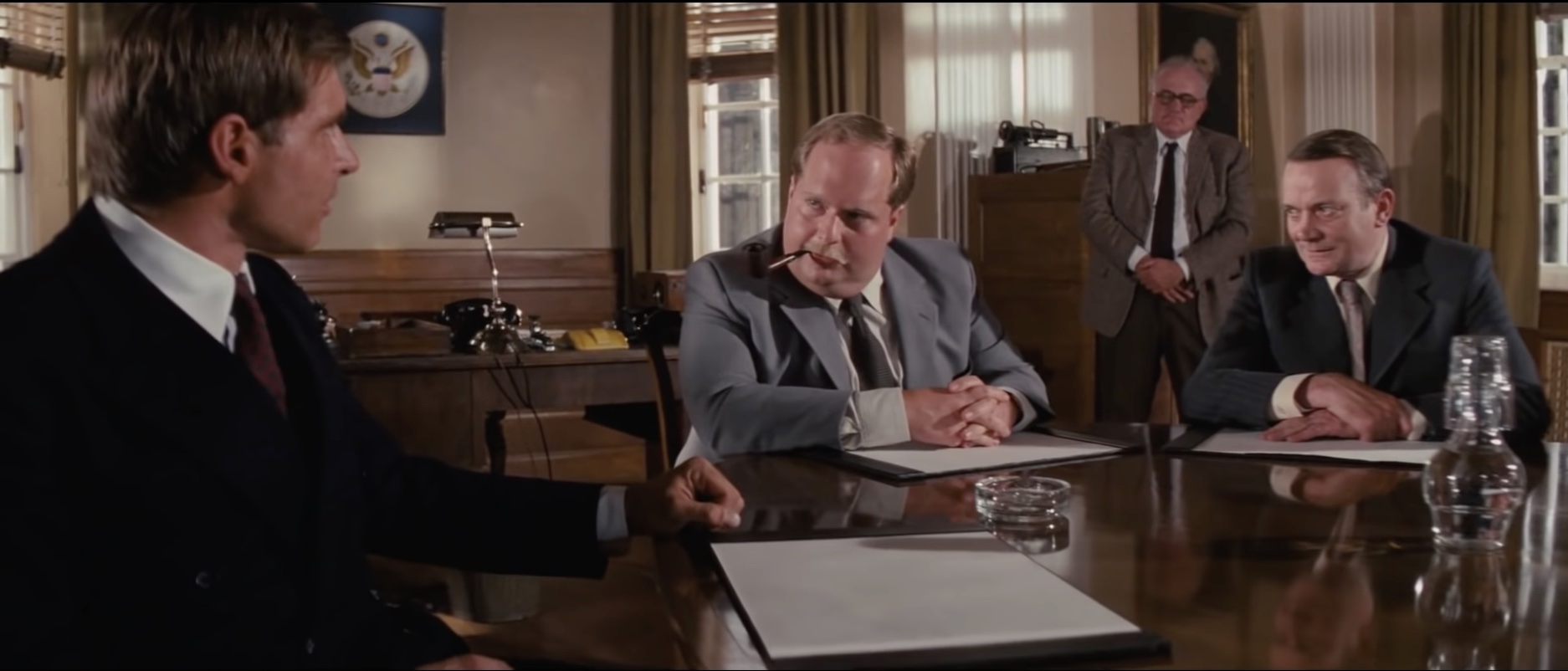
Surely the parallels between the two films are obvious, but I think they’re profound. What’s more, the distinct contrasts between the two are revealing.
Oppenheimer is a dark and despairing variation on the same story. Or is this a chicken-and-the-egg problem? Oppenheimer may have been influenced by Raiders, but I suspect that Spielberg and Lucas might have been thinking of the Manhattan Project when they dreamed up Indy’s first adventure. (It’s worth remembering that Indiana Jones and the Kingdom of the Crystal Skull opens with Indiana Jones on-site at the Manhattan Project and surviving the test-blast of an atomic bomb.)
Oppenheimer is a story of scientists — not archaeologists — in America and Germany racing to uncover the secrets of an explosive power that more than one character will refer to as “Divine. ” President Truman will call it “the greatest power in the universe.”
Our conflicted hero will engage in battles of wits with Nazi enemies even as he proceeds in deep distrust of his own American government superiors. (Note: When government agents approach Oppenheimer, seeking his leadership on the Manhattan Project, he helps them understand what they’re asking by standing in front of a chalkboard and lecturing, just like Professor Jones.) He accepts the assignment, but why? What is really driving him? Is he compelled primarily by a desire to end all war? Or is it that he is competitive and jealous in his desire to be the one who solves the mystery and seizes the power?
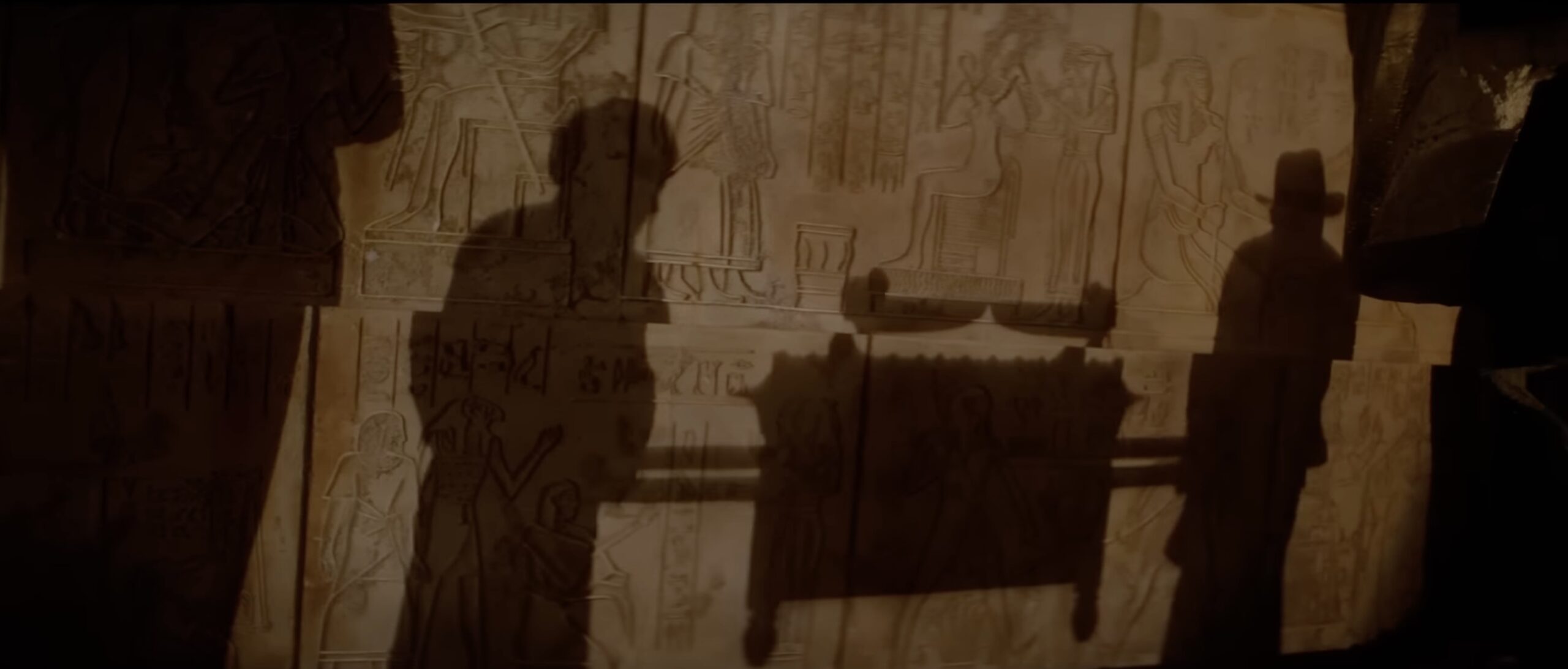
To read my detailed examination of the correlations between Oppenheimer and Raiders of the Lost Ark, and to access the full archive of posts there, join the team of subscribers who donate some dollars to support my work at Give Me Some Light.
A scorecard for Star Wars: Visions — Season 2
An early draft of this review was originally published on May 23, 2023,
at Give Me Some Light on Substack, almost three months before it appeared here.
Subscribe, and you'll read these reviews while the movies are still in theaters!
It’s because of my love for the journey of the original Star Wars trilogy that I’m bothering to write this.
In my experience — which, I know, will differ substantially from others’ experiences depending on their age and the way they came to Star Wars universe — the original trilogy played out as a complete and almost completely satisfying saga in itself, serving as formative influence in my understanding of the art of storytelling.
I saw the films between the ages of 7–13, although I was disallowed from seeing The Empire Strikes Back in that theater because the conservative evangelicals of my cultural bubble were convinced it was occulting and dangerous. (I’ve written about this substantially in my moviegoing memoir Through a Screen Darkly.) Episodes 4–6 taught me about the basic bones of mythological storytelling. They had a daring moral vision that eventually corrected and transcended the basic us-versus-them plotlines that dominated adventure storytelling then and that still dominate media today. They championed love, humility, self-control, patience, kindness, faithfulness, and empathy over enmity. The lightsabers were important, but even more important was when, how, and why they were used. It was, ultimately, an epic instilling the moral vision that today some would call antifa.
Because of that profound experience, I’ve remained skeptical of — and have usually been disappointed by — anything branded as Star Wars post-1983.
The prequels? I’ve made my peace with them. I worked hard to love them because I wanted so badly to return to that context, with those sound effects, that John Williams music, and those themes. But eventually, my optimism — my “new hope,” if you will — collapsed under the weight of increasing annoyance with their bloatedness and their blandness. They were packed with intriguing ideas, but they rarely suspended my disbelief. Lucas had become a very different artist, with very different interests, and by returning to the director’s chair he revealed that the original trilogy’s greatness was a result of remarkable and unrepeatable collaborative chemistry in a particular context that could not be re-created. He revealed that he had become a terrible director of actors; in fact, he seemed uninterested in them as anything more than mannequins in costumes. He revealed inadvertently that the magic of the first series had everything to do with lovingly handmade hardware; very little in the glossy animation of the prequels looks convincing or weighty. And he also revealed that the limitations on his creativity in those first films were a blessing that kept him from spoiling the work with excess and ill-advised tangents. The prequels, while they remain an important historical artifact for their important advances in digital-animation, were poorly cast, amateurish and dull in their screenwriting, overly long, and seemed to exist in a different universe than the original stories.
Regarding all of the arguments about what is “canon” and what isn’t — I don’t accept the third trilogy, especially the two films directed by J.J. Abrams, as canon. Why? The first six films, for all of their highs and lows, were a coherent saga from a single storyteller. There was a human soul that served as the foundation, the conscience, the “yes” and the “no” of things. In the third trilogy, it’s clear that committees are much more instrumental in the storytelling, weighing how to keep fans happy, trying to repeat what worked before, and serving up “surprises” that were just variations on surprises we’d seen in this universe before. They are derivative and sentimental, and they contradict the moral trajectory of the original Skywalker saga, effectively dismissing what was profound about it in the first place.
The exception: Rian Johnson’s The Last Jedi has been the only Star Wars film post-1983 that I found engaging and, occasionally, thrilling. Here was a brave storyteller with the guts to challenge audiences with new and meaningful ideas rather than just playing to the crowd. It made me believe that there might still be some potential for genuine artists asking unexpected questions that would lead to significant revelations and consequences within this world of ideas. It was still “fan fiction.” And I believe that’s what were stuck with forever, at this point — fan fiction of varying quality. Fan fiction can be meaningful and even inspiring, sure. But that is very, very hard to achieve.
And now, in the era of Star Wars as television franchising, I’m more likely to cringe and avoid anything branded as Star Wars than I am to invest any time in it. I’ve been insulted too many times, bored too many times, even frustrated. The only TV series of this kind that has really engaged and moved me so far has been Tony Gilroy’s Andor, a Star Wars series for adults with outstanding writing, consistently excellent performances, and a story arc that restored the joy of surprise to the Star Wars universe for me for the first time since The Last Jedi. By my lights, Rian Johnson and Tony Gilroy have set the standard for what is possible. Those guys are authors with meaningful stories to tell.
While The Mandalorian got off to an enjoyable start, it did so by leaning too heavily into fan service, sentimentality, and the kind of plot twists that keep narrowing the Star Wars universe to a community in which everybody seems to know everybody. It also had plenty of storylines that contradicted that core backbone of the original trilogy’s moral vision. At times, it’s shown us what high-spirited fanboys with some imagination and a lot of money can do on a good day. It has expanded the Star Wars universe in an entertaining fashion, but without deepening what it all means.
I couldn’t be bothered with The Book of Boba Fett, and the takes I heard from big Mandalorian fans seemed to consistently support my decision: “Well, it’s not very good until the Mandalorian shows up.” Great.
I avoided Star Wars Visions, Season One as well, as I heard that the storytelling was poor. So I didn’t pay any attention to the promotions of Star Wars Visions, Season Two… until somebody said two magic words:
“Cartoon Saloon.”
Oh.
Okay.
The studio that created The Secret of Kells, Song of the Sea, The Breadwinner, and Wolfwalkers, the most impressive run of animated masterpieces since the height of Studio Ghibli and the golden age of Pixar?
I tuned in as soon as I had an opportunity, and I was not disappointed… by that particular episode. It was visually dazzling, unpredictable, and… well, I’ll say more later. The price I paid for enjoying Cartoon Saloon’s installment so much was that I ended up watching the whole series in the hopes of more surprises. More often that not, the shorts were disappointing.
So, since I want to make something useful of the time I invested, here’s my report card on Star Wars Visions, Season Two.
GRADE “C-MINUS”
“Journey to the Dark Head”
Directed by Park Hyeong-geun
A hopeful mechanic and a disillusioned Jedi team up for an unlikely quest to turn the tide of war.
All of my anime pet peeves are here:
- More emphasis on emotion than storytelling substance.
- Characters who seem to careen between extreme emotions in ways that make me think it must be exhausting to be them.
- A preoccupation with faces distorted with rage in close-up.
- A boy and a girl falling through the clouds — every single time!
- Seemingly endless fight scenes.
Also, this dude Toul is the worst Jedi candidate I've ever seen. Seeing this guy taken seriously and sent out on a mission unsupervised? My faith in Jedi Councils has never been lower.
Also, I do not understand what in the world this is all supposed to mean. Whenever conversations about "the Balance of the Force" conclude with "Welp, the light and the dark will always be equally entangled, and there will always be hope and despair in equal measure," I'm always like "Great. I'm out. What's the point? What does hope even mean if we can only hope for a perpetuation of suffering?"
“The Pit”
Directed by Justin Ridge, LeAndre Thomas
Letterboxd synopsis:
A young prisoner, forced to dig for kyber by the Empire, plans an escape for [himself] and his people.
Well, okay — let's at least acknowledge that the plot has its present-day relevance. The Pit focuses on a slave-labor community who struggle against despair when their overlords abandon them down in the very mining pit they themselves have dug, and nobody can think of a way out. Throw a rock in the air these days and you'll strike an exploited worker of one kind or another.
But thematic relevance is not the secret to great art. This animated short is unremarkable in almost every way — easily the weakest of the eight Visions S2 episodes I've watched so far. Some of these Visions episodes demonstrate very little overlap between their stories and the Star Wars universe, and this one is the worst offender on that count. The slave-drivers of this naive mining crew are stormtroopers, and the mining operation is for kyber crystals (which even a lot of Star Wars fans don't know very much about). And that's it.
This may well have started out as someone's idea of a dystopian fantasy film in the vein of Mad Max that was then hastily revised to include a couple of recognizable Star Wars designs just to qualify. That makes it feel extraneous... or just extra.
As a result, its greatest distinction its its primarily black cast — an honorable priority, but when poorly handled it results in clumsy, heavy-handed allegory.
And yet, hey — Daveed Diggs!
GRADE “C”
“Sith”
Directed by Rodrigo Blaas
A former Sith apprentice, leading a peaceful, but isolated life, is confronted by the past when her old master tracks her down.
Come on — whoever wrote that synopsis has buried the lede: This is a movie about recovering Sith apprentice who has run away to sort out her troubles through art-making. Sounds like my kind of Star Wars story!
"Sith" is the opening episode of Visions S2, and it gets things off to a splashy start with vivid watercolor-ish fireworks, an effectively sinister Sith Lord, and the latest in a long line of Star Wars fan-fiction funky little Droids Adorbs.
But the protagonist, whose design combination of a Terminator cyborg arm and a Cruella DeVille hairstyle suggests a complicated character, turns out to be a bore.
And at the end of the story, I feel less knowledgeable about the cosmic battle of light against darkness — I don't find any kind of wisdom in the battle's resolution, or anything in particular to admire about our "hero" except that she decided she wanted to leave the Baddies and start an art studio.
Pleasing to look at and listen to, but ultimately less than the sum of its finger-painty parts.
“In the Stars”
Directed by Gabriel Osorio
Two sisters, the last of their kind who live in hiding on their ravaged land, squabble about how to survive with the Empire encroaching. On a water run, the sisters must fight back when they are discovered.
Clearly a labor of love, and glorious feat of stop-animation. Although the open chapter gets awkward with exposition to fill us in on the sisters' backstory, that backstory is cleverly animated with something resembling chalk art. After that, the sisters embark on an adventure to steal drinkable water from some kind of Imperial pollution plant that's turned their world toxic, and that's where the complexity of the animation becomes rather astounding.
And yet, once again I find the storytelling ultimately dissatisfying. In this world, it seems that the Force is just too easy, too accessible, ready to use whenever you need if you just furrow your brow, clench your teeth, and concentrate hard enough. That makes the Force less mysterious, less interesting, less meaningful. No only that but it seems that just about any architectural monstrosity established by the Empire is take-downable if you just strike the right point.
The calamity at the film's conclusion is bizarrely over-the-top, not to mention inexplicable.
“The Bandits of Golak”
Directed by Ishan Shukla
Letterboxd synopsis:
Pursued by the Empire, a boy and his force-sensitive younger sister seek refuge at a vibrant dhaba.
Weirdly inconsistent in its animation — needed another six months of work. It looks like a low-budget straight-to-video production for Sunday schools.
I like the slow-build of tension in how The Force is used in this episode, beginning with a child's sense of innocent play and then building to some truly unsettling levitations.
Boy, they really went all in on making up for lack of certain cultural representation here, didn't they? Has any Star Wars environment ever adhered more closely to particular Planet Earth ethnic context? At one point I was bracing for this to blow up into a full-on Bollywood musical number, and I was actually a little disappointed when it didn't.
At this point in this Visions season I'm weary of lightsabers. The magic of lightsabers in Star Wars used to be in their scarcity, and now it's just "You get a lightsaber and you get a lightsaber and you...!" Still, this duel is flashy and has a decent sense of gravity.
Plot-wise, this one works well with Screecher's Reach to bring symmetry and balance to the Force.
GRADE “B”
“Aau’s Song”
Directed by Nadia Darries, Daniel Clarke
A child who longs to sing must stay quiet because her voice can cause great calamity in the mines.
Watch this one for the loveliness of fabric animation.
While the story's connection to Star Wars is slight and inconsequential (like so many of these stories), the love and passion evident in the handmade art is radiant. It's like one of those children's illustrated storybooks that are designed for us to touch the illustrations — the three-dimensionality of the stop-animation textures is enthralling. It's not designed to show off; rather, it creates a distinctive animated world. I can imagine Disney/Lucasfilm selling some toys from this one to small children who bond with Aau.
You might call this one, of all of these Visions... the most heart-felt.
Thank you! Thank you! I'll be here all week. Come back. Bring a friend.
GRADE “B-PLUS”
“The Spy Dancer”
Directed by Julien Chheng
Letterboxd synopsis:
The premier dancer at an Imperial-frequented cabaret is tested when her identity is compromised.
Okay, a question about the opening scene: Isn't that one guy in the opening scenes a little chonky for a stormtrooper? Are these troopers not clones? Or is there some level of Star Wars lore that I'm just not nerdy enough to know?
I'm assuming this film's animation was started before Nope was released, but the dancer's big flowy entrance really reminds me of the big "unfurling" of the alien spacecraft in that film.
There's a certain revelation late in this film that made me want to put a moratorium on a certain kind of plot twist in Star Wars films. But I am intrigued by this Visions season's focus on stories involving the many and varied ways in which young people are lured/sold/abducted into serving the Dark Side.
Ultimately, this one deals another hard blow to anyone who still holds that, when it comes to shooting, "only Imperial stormtroopers are so precise."
GRADE “A-MINUS”
“I Am Your Mother”
Directed by Magdalena Osinska
Young pilot Anni, who is embarrassed by her sweet, but clingy mum, must team with her for a madcap family race at the academy. Along the way, their relationship is tested by the elements, their old ship, other racers… and each other.
Why am I surprised that when Aardman does Star Wars, it's totally an Aardman movie?
This was unexpectedly hilarious, joyously complicated, full of surprises, and easy to imagine happening in a galaxy very, very close to Wallace and Gromit's. Probably the silliest Star Wars adventure of all, and I mean that as a compliment.
If we’re going to indulge in fan fiction, let’s have some fun with it and remember that Star Wars was originally imagined with children in mind.
Put Aardman in charge of the next Star Wars Holiday Special.
GRADE “A”
“Screecher’s Reach”
directed by Paul Young
A young girl, seeking reprieve from her days in a rural workhouse, discovers a legendary haunted cave with her friends.
Visually enthralling in the unmistakeable Cartoon Saloon style, with perfect voice casting, characters who make strong impressions quickly, and an incredibly powerful use of fierce luminosity and pitch-black darkness.
It's unacceptable that J.J. Abrams' The Rise of Skywalker cost me 141 minutes that I cannot get back… but when Cartoon Saloon gets to play in the Star Wars universe, I only get 15 minutes, and I want at least 130 more.
Unlike Abrams, Cartoon Saloon’s artists clearly care about beauty, wisdom, and strong-boned storytelling.
I'd rather watch this ten times through than sit through Rise a second time.
That ghost is the most terrifying thing Cartoon Saloon has ever unleashed, and maybe the scariest animated monster I’ve ever seen.
And that conclusion — yes, for a scene like that, you definitely spend the money for the voice of Angelica Huston.
Disturbing and satisfying.
I’ll say it again: If you give Cartoon Saloon the chance to make a full Star Wars feature, I will be there on opening day, fully confident that the Force is strong in them.
Showing Up (2023)
[An early draft of this review was originally published on May 23, 2023 at Give Me Some Light on Substack, almost three months before it appeared here. Subscribe, and you'll read these reviews while the movies are still in theaters!]
Showing Up, the latest film from the provocative, meditative American storyteller Kelly Reichardt (writer/director of First Cow, Certain Women, Wendy and Lucy, Meek’s Cutoff, and Old Joy), stars the great Michelle Williams as Lizzy. Lizzy is a sculpture artist striving to make progress in her work while also meeting the demands of a bill-paying job. And it's not a particularly exciting job, but it's the kind of job so many artists find they have to manage in order to afford having any time at all for their true calling.
Lizzy is, arguably, a little better off than some of us who are always striving against daunting challenges to live a life of creativity. At least she gets to work in an environment surrounded by other artists and art students, where the employers appreciate the imagination. (This runs quite contrary to artists in academia who often learn the hard way that their administrators don't understand, respect, or care about creative work.) Specifically, Lizzy works a desk job at the Oregon College of Arts and Craft — an actual art school that recently closed.
But an artist who works among other artists also faces distinct challenges. In fact, as I live and work in various circles of visual artists and writers, Lizzy’s challenges are so familiar to me — so specifically and piercingly personal to me — that I emerged from the theater feeling like I’d just grieved my way through the tortured testimony of a close friend.
Don't get me wrong — I mean that as a recommendation. While Reichardt's characteristic truth-telling makes some aspects of this poignant portrait rather painful, Showing Up is, above all, a comedy. And a very funny one.

It’s easy to read Showing Up as something of a memoir: Like director Jim Jarmusch’s whimsical and episodic Paterson in 2016, which followed a poet as idiosyncratic and introspective as Jarmusch himself, here's a movie by a singular artist about a singular artist that is so full of truths known only by artists who have lived them that it is going to be beloved by those artists.
And, like Paterson, it's also on a wavelength that will make its subtle comedy tremendously funny for artists. And not just "Ha-Ha" funny (although there's plenty of that), but "Laugh-of-Recognition" Funny — the Funny that the Over the Rhine song says "makes you laugh when you feel like dying." Indeed, I laughed out loud at its wit and wisdom even as I felt like crying.
For example, we’re drawn into the maddening ways in which mundane, practical complications can feel part of a conspiracy designed to prevent an artist from concentrating. Lizzy often teeters on the edge of madness or despair over an accumulation of interruptions:
- the fact that her apartment’s hot water supply has vanished;
- the fact that her landlord (the brilliant Hong Chau, who seems to be everywhere these days) can't get around to helping her because she is an artist herself under extraordinary pressure;
- the fact that Lizzy's landlord asks for her help with time-consuming and emotionally demanding distractions, like the rehabilitation of a pigeon injured by Lizzy's own cat, and
- the seemingly inescapable dramas of Lizzy's distinctly unhappy family (played by Judd Hirsch, MaryAnn Plunkett, and John Magaro).
And that just scratches the hand-painted surface of Lizzy's predicament.

These kinds of things are the sort of trouble that I find myself and other artists commiserating about on a daily basis. Having said that, I was the only one in my audience of about 30 laughing out loud as Lizzy’s exasperation seems to age her before our very eyes. And I laughed almost all the way through the movie until my anxiety nearly wrecked me in the last 15 minutes. I tried to be quiet. I hope I didn't bother anybody.
There is a particular kind of torture in the life of the artist who loves not only art, and not only themselves, and not only their family and neighbors, but the world around them. If the world figures out that you are willing to love, willing to care, willing to watch over the injured little things of the world, then the world will ensure that you open your door to a world of endless needs. It will wring that love out of you until you have almost nothing left for your art. And you will feel like a failure, both in trying to save your unsavable world, and in realizing the art that you could complete if only everyone would give you some peace and quiet. That is the truth this movie knows.
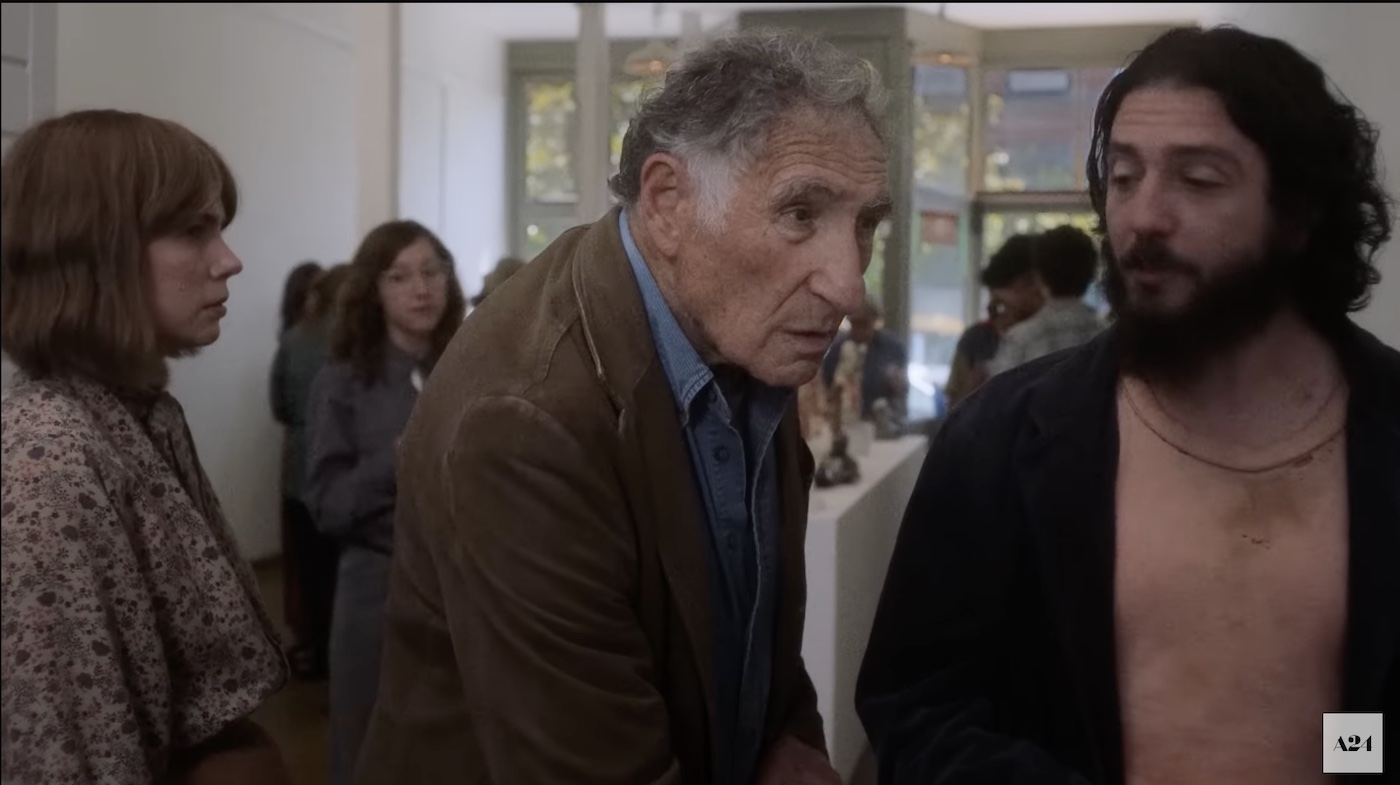
I’m so grateful — and perhaps a little less lonely — to find companionship like that in this movie. It’s like finding a film made in a language that you speak fluently but that you never expected to hear art the movies.
And what a great performance by Michelle Williams, who was impressive in Steven Spielberg’s The Fabelmans, and who has given us such a wide variety of nuanced characters over the years. (I still look back with deep fondness on her supporting role in The Station Agent, where her chemistry with Peter Dinklage was such a delicate joy.)
Showing Up is going to be one of those films that I go on recommending for years to come, but with particular enthusiasm to certain people: those who spend their “free time” scowling at rough drafts of poems, sketchbooks full of concepts, and differing arrangements of songs, trying to quiet the noise of the everyday so that they can make room for inspiration.
It seems appropriate that I saw this film at Seattle Grand Illusion: a theater that has been a labor of love for its managers for decades, and which has survived against all odds. The building in which it has given Seattle moviegoers such rare and wonderful occasions to revisit classics and discover rare wonders … is being sold. So, farewell, Grand Illusion Cinemas! Thank you for so many years of unforgettable films! You introduced me to The Son by the Dardenne brothers, which is one of my all-time Top Ten favorite films! You introduced me to About Elly, by Asghar Farhadi, which helped kindle my deep love for Iranian cinema. And those are just two examples. This was a beautiful date night for our long-lasting relationship. I'm ever so grateful. And I hope that your intention to come back to life in a new location comes true.
Peter Pan and Wendy (2023)
[This review was originally published on May 11, 2023 at Give Me Some Light on Substack. Subscribe, and you'll get these reviews while the movie is still brand new!]
Do you hear that tick-tocking? Do you remember what that means? Somewhere, a crocodile lurks, the timepiece in his belly counting the days since this predator swallowed Captain Hook’s right hand.
And that means a fantasy world — one full of whimsy, swashbuckling, children who don’t want to grow up, and cringe-worthy racial stereotypes — is just around the corner! Are you ready to go back… to Neverland?
I think everyone will understand if your answer is “No.” You’ve been invited back before. Several times, probably. And was the journey all that you hoped for? Or were you, like Wendy in most Peter Pan stories, relieved when you got back home from the realm of arrested development?
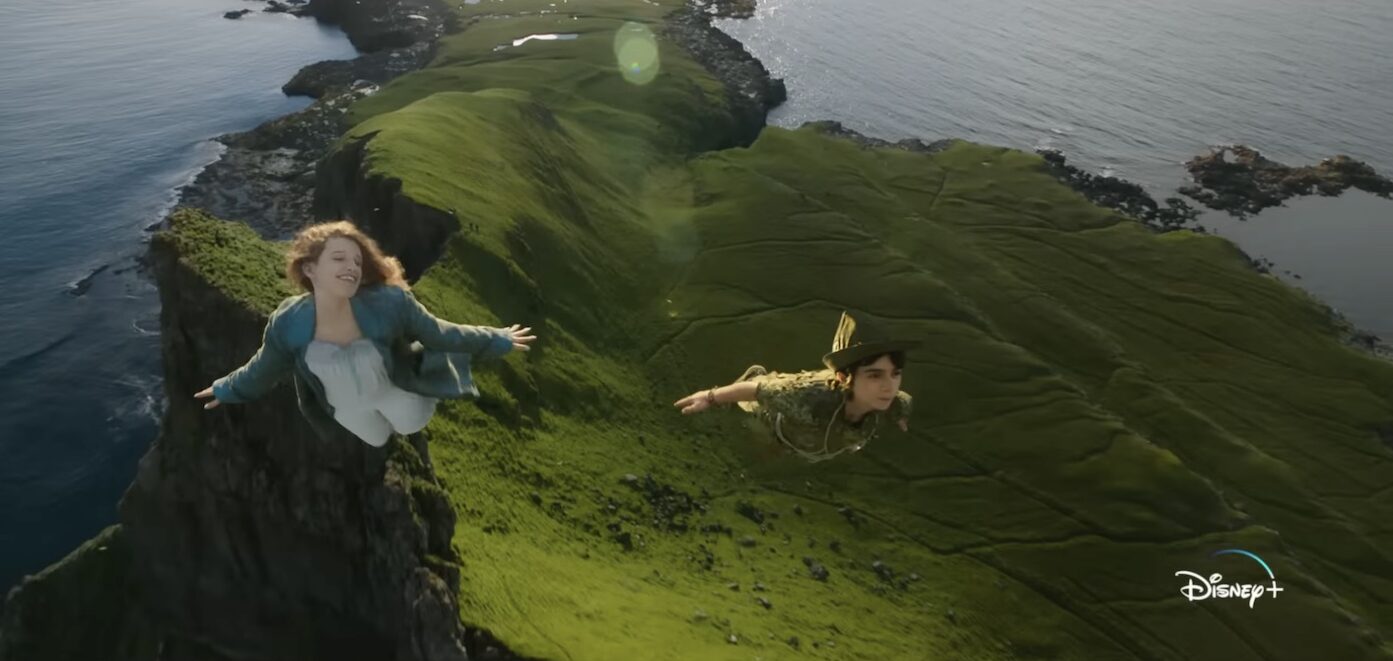
In the 70 years since Walt Disney’s animated adaptation of J.M. Barrie’s classic stories, we’ve seen filmmaker after filmmaker try to get a live-action adaptation off the ground. Most attempts, while well-intentioned, have only managed the equivalent of a few long-jumps; none of them have soared. I’m fond of P. J.Hogan’s 2003 version with Jason Isaacs as Hook. And the 1924 silent film is still a wonder. Steven Spielberg’s 1991 Hook remains the most talked-about, but it’s still frustrating for how it squanders Robin Williams’ inspired turn as a bad dad who has forgotten he was once the playful Pan. The thing’s to soggy with sentimentality; and Spielberg somehow forgets that pirate ships are meant to be seaworthy cinematic wonders, not harbor fixtures. (I'm still angry about this: How does the master of UFOs and flying bicycles and Indiana Jones car chases make a Peter Pan movie in which the ship never sails?!)
Still, there’s just so much potential in this story of lost boys who long for their mothers and refuse to grow up, fairies who pepper you with pixie dust if you shake them just right, and pirates who aim their cannons skyward at flying children.
I’ve been optimistic ever since I heard that Disney had given the ship’s wheel to director David Lowery. I’m still high on the head trip of his wildly imaginative 2021 re-imagining of The Green Knight — one of three films I ranked as my #1 of that year — so I couldn’t wait to see how he would make All Things Neverland new.

Alas, while Lowery’s Neverland is an enchanting destination — its dreamy London-by-night skylines, its exotic island environments, and its enchanting networks of caves offering epic possibilities — his idiosyncratic storytelling style seems stifled, as if the studio had promised him a puffy-sleeved pirate shirt and instead strapped him up in a straitjacket. The final cut reeks of studio interference, the results so dissatisfying that Disney has decided to bypass big screens send it straight to Disney Plus won’t put this on big screens, as if to punish an artist for thinking outside the box.
On Letterboxd, I'm giving it the very rare combo of only "✩✩✩" out of 5 and a “🧡” emoji — which means I think the movie’s problems are almost as obvious as its strengths, but I somehow found myself savoring glimpses the voyage we might have taken if the system hadn’t gotten its hooks into Lowery’s imagination.
Some Peter Pan and Wendy Pros:
- Lowery’s Neverland may be the melancholiest fantasy world the big screen has ever seen, but it looks great. I don’t mind a moody fantasy — Spike Jonze’s Where the Wild Thing Are is among my favorite films. If Disneyland looked like this, I would fill a backpack with rock-climbing gear and call my travel agent. It looks like a wonderland for the sort of sailors and hikers and spelunkers who bring along books of poetry and blank journals.
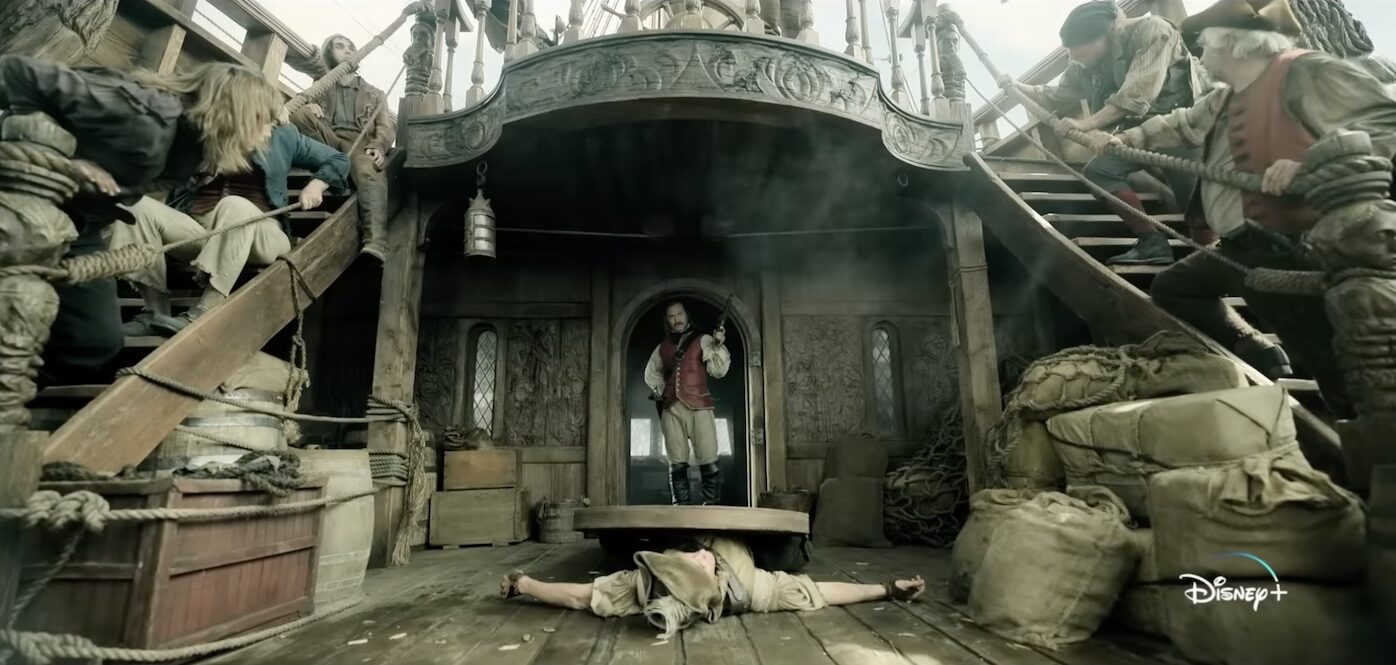
- Jude Law, who has always been as at his best when he leans into his character-actor strengths instead of leading-man responsibilities, steals this movie whenever he’s onscreen — and I’m not sure I’ve ever been able to say that about him before. He has a surprising take on Captain Hook: This pirate is temperamental, yes… but that's because he's more confused than wicked, as if he's not sure how he got into Neverland to begin with, and he’s half-expecting to wake up from this dream and return to his work as mild-mannered Watson in a Guy Ritchie Sherlock Holmes movie. There's a softness and an insecurity in Hook’s half-whisper that suggests he's wondering "Did I leave the oven on in some other dimension once upon a time?"
- Jim Gaffigan (what a pleasant surprise!) gives us a Smee who has some gravitas and dignity. Somehow, dressed up in this silliness, he seems compelled to counteract the camp and dig deep for some wisdom and pathos. If there must be a spin-off or a sequel or a prequel, make it about Smee, Disney! (Or, even better — let Gaffigan do his next Amazon Prime standup special in this costume.)
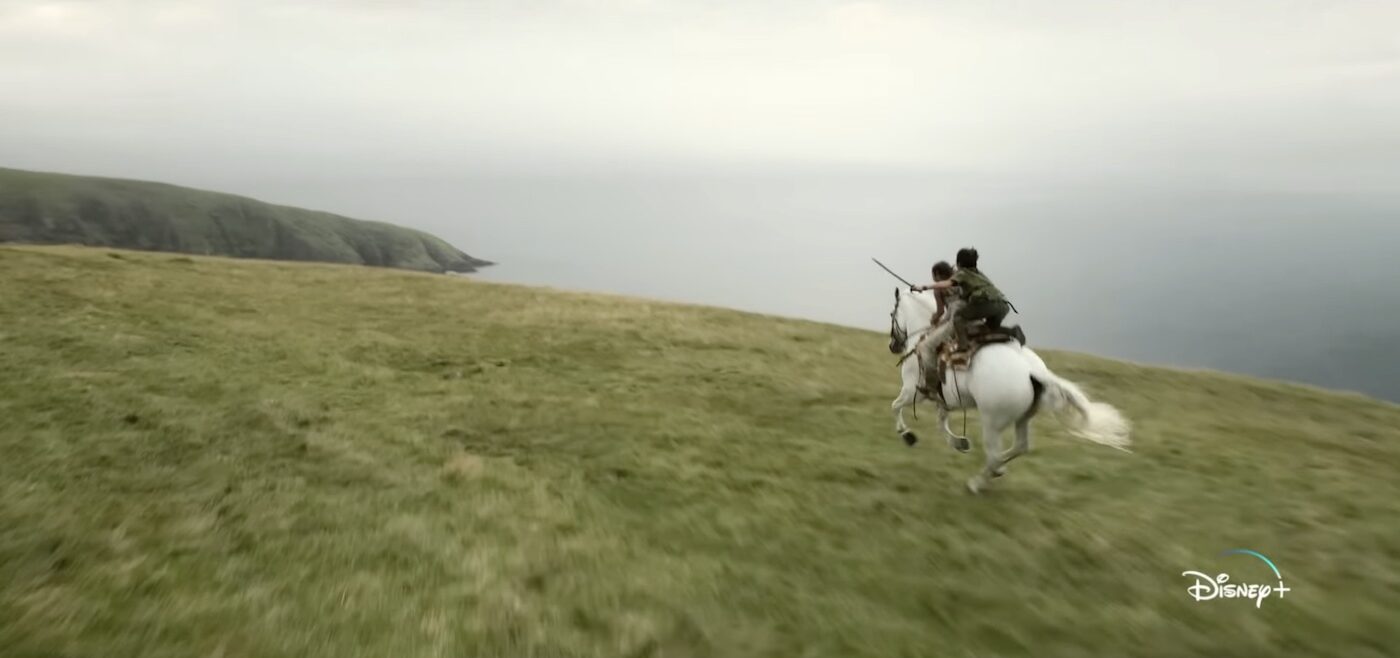
- Tiger Lily and her people are treated with respect in this version — and thank God! Disney’s history with this story is as disgraceful in its treatment of Native Americans as Song of the South was for Black Americans. There are a few moments here where we might imagine Wendy and her brothers stumbling into Terrence Malick’s The New World. (Still, making Tiger Lilly’s tribe noble and respectable doesn’t help us understand what in the world they’re doing in Neverland. If this is a place for people who refuse to grow up, what are we to make of the presence of Native Americans?)
- And Hook's ship — my stars! — it looks incredible both at sea and in the air. And that’s the sight I always hope I’ll find breathtaking in any adaptation of this story.
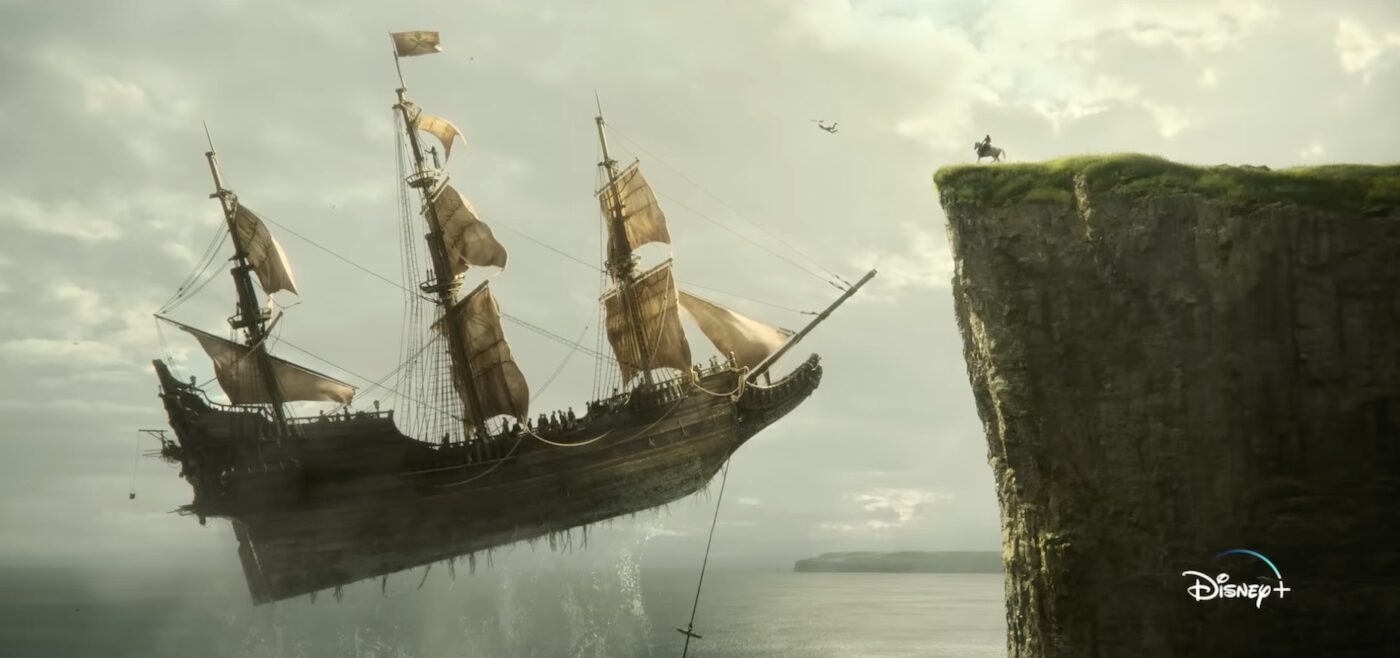
Some Captain Hook Cons:
- This Wendy, played by Ever Anderson (daughter of Milla Jovovich and filmmaker W.S. Anderson), is both too precious and too capable, an ideal who can sing, swoon, swordfight, and soar — or whatever is asked of her — at a moment's notice, without a single idiosyncrasy to make her interesting. She's like an annoyingly perfect theater kid who hasn't yet found a way to turn a "type" into a character. That’s not Anderson’s fault; she’ll be fine when she’s cast in the right role. It’s the way this character’s written — or, rather, whatever aspects of her character as written survived the studio slicer-and-dicer and made it to the screen.
- Peter Pan, as played by Alexander Molony, is off-puttingly glum, annoyingly fickle, and, well, just dull. He has a way of rudely and repeatedly interrupting his own movie and demanding attention. A certain petulance is proper for a character who refuses to grow up, but the thing about Pan is that he’s supposed to be charismatic. We’re supposed to find the thought of playing around with Lost Boys appealing, at least for a while. But this Pan lacks the mischievous spark and the joy in action that is essential to the character.
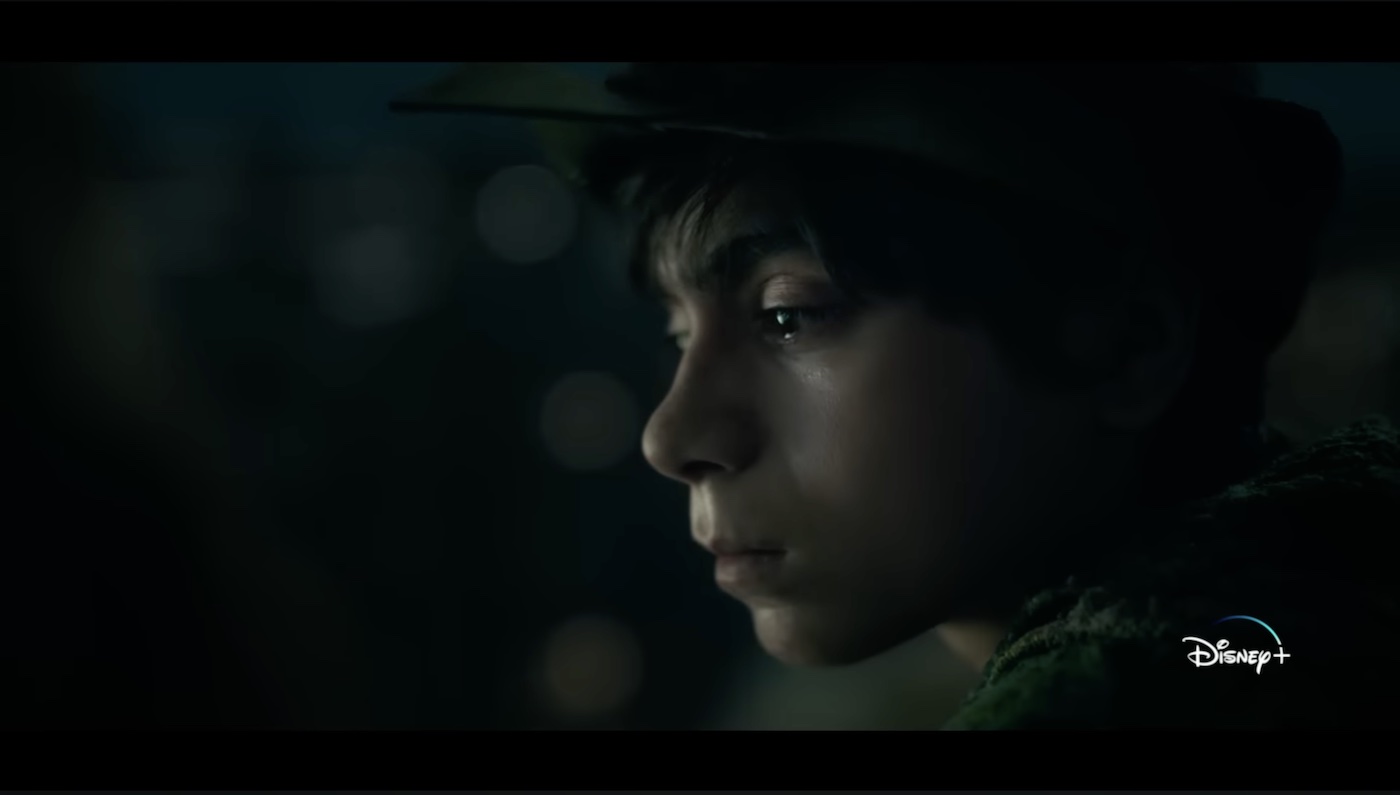
- The symphonic score, credited to Daniel Hart, is lush and euphoric, with occasional nods to melodies from the animated original. But it’s accompanying a much richer and more dramatic film than the one we're watching. It seems convinced that we're all caught up in swells of romance and drama and action, and, well... I'm not.
- Have I been spoiled by the glory of the first few Pirates of the Caribbean films and by Taika Waititi’s ingenious Our Flag Means Death? I just keep hoping for this crew of villains to distinguish themselves and kick some life into the storytelling. Alas, they might as well have been generated by A.I. with the prompts “typical + pirates.”
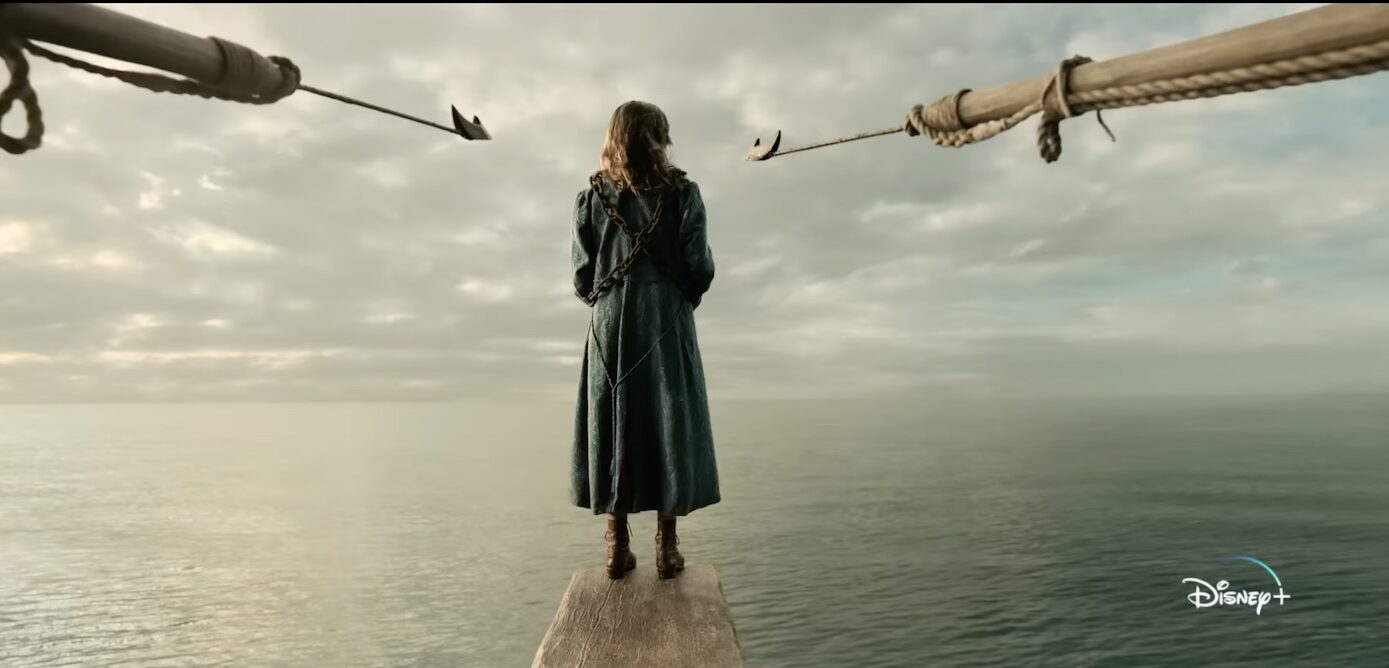
Beyond pros and cons...
There's a troublesome tonal weirdness to this thing that makes me frustrated while watching it and yet strangely compels me to watch it again. Lowery’s The Green Knight burned with such inspiration that it felt like we were witnessing a rare wonder: a filmmaker taking a substantial leap forward to fulfill his full potential, realizing all of his filmmaking dreams in one wild 140-minute rush. Here, something’s missing. It seems that he and his motley crew are bored by the same old Disney classic storyline, and, worse, held back from imagining and exploring new possibilities. A certain malaise hangs over the whole endeavor, a sense that everyone involved is coping with the loss of what might have been.
And yet, even Disney can’t erase all evidence of his vision. Lowery's ambitions are evident in the extravagant set design, the acrobatic aerial perspectives which often recall Malick’s “Holy Spirit with a GoPro” cinematography, and the over-edited action scenes which seize upon all the playful possibilities of a levitating pirate ship. While I never find myself caring about this Peter or this Wendy for a moment — in fact, I keep wishing they would wander off together and leave us with Smee, the Lost boys, and Tinkerbell — I would have happily moved through the enchanting aesthetics of this world in their unremarkable company for another hour.
I hope that whatever Lowery does next, he's free to explore with the energy, curiosity, and awe that made The Green Knight so compelling through multiple screenings. That film was so alive with inspiration that it seemed like he was always scrambling to keep up with new ideas. This one, though… it’s a beautiful ship, but it leaves us with a sinking feeling. Perhaps the studio pirates didn’t have enough respect for their captain. Perhaps they mutinied. Perhaps they took the wind out of its sails.
Are You There God? It's Me, Margaret. (2023)
[This review was originally published almost three months ago at Give Me Some Light on Substack. Subscribe, and you'll get these reviews while the movie is still brand new!]
Are you there, Kelly Fremon Craig?
It's me, a middle-aged man and a fan of your movies about teenagers.
Okay, that probably sounds unsettling, like maybe someone should put me on a watchlist. And I’m well-aware that I, as a 50-something male, am not the target audience for your films about teenage girls.
But as I teach creative writing to students just out of high school, students who are working through their own teen experiences in writing, I care very much about this genre. And your film The Edge of Seventeen remains for me, seven years after I first saw it, one of the gold-standard films about teenagers and families of teenagers. That movie stands strong alongside Greta Gerwig’s Lady Bird as an exceptional film in its genre for how it demonstrates such close attention to — and thus love for — young humans in uncertain and embarrassing stages of development. I still remember Nadine (the always-impressive Hailee Steinfeld) and her exasperation when she discovers that her brother is dating her best friend Krista (my first encounter with the radiant Haley Lu Richardson!) While that premise struck me as unremarkable in the genre of coming-of-age comedies, I was surprised and delighted by how quickly I found myself caring for your characters, by the depth and nuance of the performances; and by Woody Harrelson’s understated work (which remains my favorite big screen performance of his).
So I was there on opening weekend to see your adaptation of Judy Blume’s beloved story about Margaret.
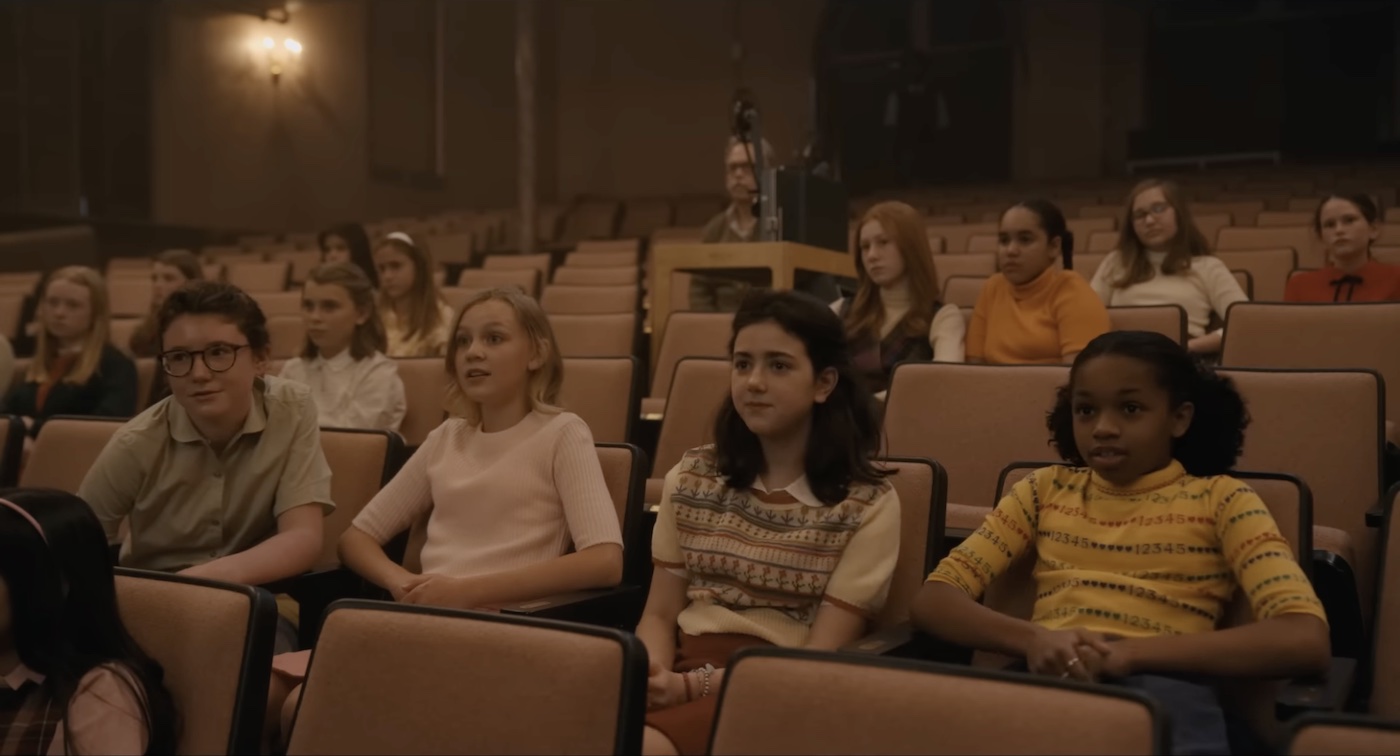
And sure enough, even though I’ve never been a sixth-grade girl, I found so much here that rang true. Like Margaret (whose spunk, awkwardness, and bewilderment are played to perfection by young Abby Ryder Fortson), I grew up with loving and faithful parents who came from families with entirely different kinds of engagement with religion. For Margaret, Dad (Benny Safdie, inspired casting!) is Jewish, and Mom (the effervescent Rachel McAdams) is a Christian. For me, both Dad and Mom were (and still are) evangelical Christians, and during my K–12 school years, invested in the development of my intellect and my faith. (Here’s to “mainstream” Christians who have confidence that the Truth will set them free, and who would never build walls of denial and antagonism against the world that they claim God “so loved.”)
You portray with such sensitivity and understanding the trouble that Margaret suffers as she gets caught in a tug-of-war between zealously religious grandparents, both eager to convert her to their tradition. I didn’t experience this in my family, but I did experience it in the world of Christian education, where I found myself torn between the so-called-“conservatives” (who were were obsessed with cultural dominance, morality checklists, and church-culture conformity, and seemed so often to be disgruntled), and so-called “liberals” (who seemed irresponsibly reckless, but who were appealing in their enthusiasm about imagination, diversity, and inclusion). I found myself recoiling instinctively from teachers who were hell-bent on indoctrinating me into what I now recognize as religious fundamentalism — and that’s quite similar to what Margaret is feeling when her Jewish paternal Grandmother Sylvia (played with effortless charisma by Katy Bates) and her evangelical maternal Grandma and Grandpa Hutchins (Mia Dillon and Gary Houston) meet on the battlefield for a claim on the poor girls’s soul.

I love that Margaret realizes that she can reject such programatic, control-freakish behavior and still carry on a meaningful dialogue with the Higher Power whose presence she can feel. (Is this a faithful representation of how Judy Blume handles this in the book? I hope so. It’s inspired.) And as she does, she’s on a trajectory toward love and inclusion, quite contrary to the circles of peer pressure who are preoccupied with forming exclusive clubs that have strict membership guidelines.
Like Margaret, I’ve never much doubted that there is a God, a Presence in the silence who pays loving attention, and who isn’t there to grant my wishes but to show me that “love is bigger than anything in its way.” (Thanks for that line, U2.) I drew confidence and consolation from the concept that God was gracious and benevolent; I never dreamed of throwing those teachings of Jesus out with the toxic bathwater of fundamentalism. I was drawn to (and, if you will, “saved” by) teachers who believed that God is Love, and Love respects the law but favors grace; God is Love, and Love is full of fearless intellectual curiosity; God is Love, and Love is Unconditional, embracing and learning from outcasts, and refusing to set up exclusionary membership standards.

Anyway — as you can see, while the movie explores so may of Margaret’s challenges (and those of her mother, too, in ways that make the film so much more substantial), I resonated with this particular thread of the story. I’ve never read Are You There, God? It’s Me, Margaret, even though it’s revered now as a classic work. I don’t remember the book being a topic of discussion amongst boys my age, but I was an avid reader, and I’m surprised that I didn’t move on to reading Judy Blume after growing up in the good imaginary company of Fern from Charlotte’s Web and Beezus and Ramona from Beverly Clearly. I missed out. Even though I was quite busy surviving my own confusing adolescence at the time, I think I would have found plenty about Margaret’s challenges — social, biological, theological — “relatable” and intriguing.
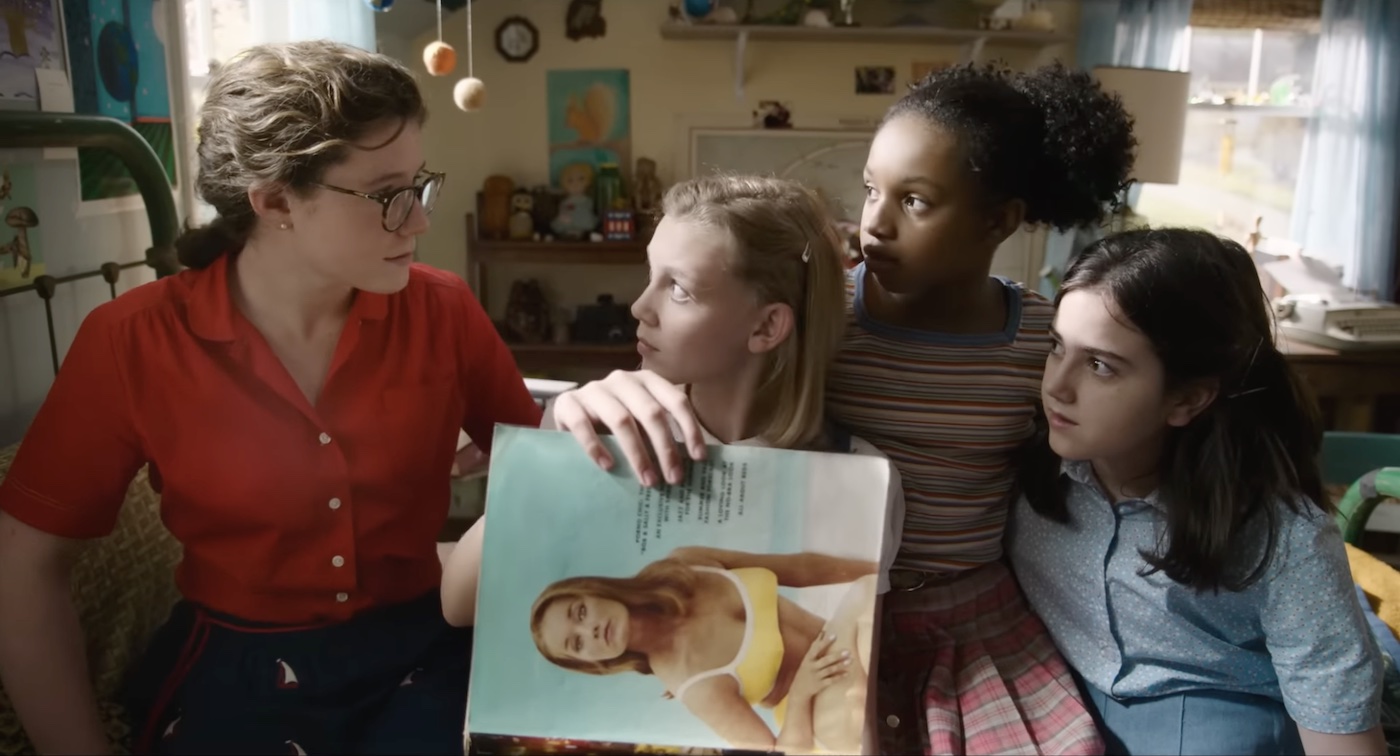
I never suffered a traumatic move from one city to another in my childhood, but I can imagine how it rattles poor Margaret when the family moves (despite Grandma Sylvia’s best efforts to stop them) from New York to New Jersey and she has to adapt to a new school, a new community of teens. But I can, of course, understand the alarmingly biological unrest of adolescence and its hormonal surges, the increasingly intriguing and terrifying world of sex, and the troubles of peer pressure. Who is Margaret supposed to become? Which religion will she embrace? When will she cross that threshold into womanhood? Which comes first—the bra or the bust? The pads or the period?
I can imagine that this movie might have been somewhat discomforting to me in middle school. The subjects of puberty and sexuality were treated as so secretive — and, frankly, so charged with the threats of shame and Divine judgment — that it would have been difficult for me to easily interpret this story. But now, as the happy uncle of more than a dozen amazing nieces, some of whom have now grown up and raising daughters of their own, I am ever so grateful that this book exists.
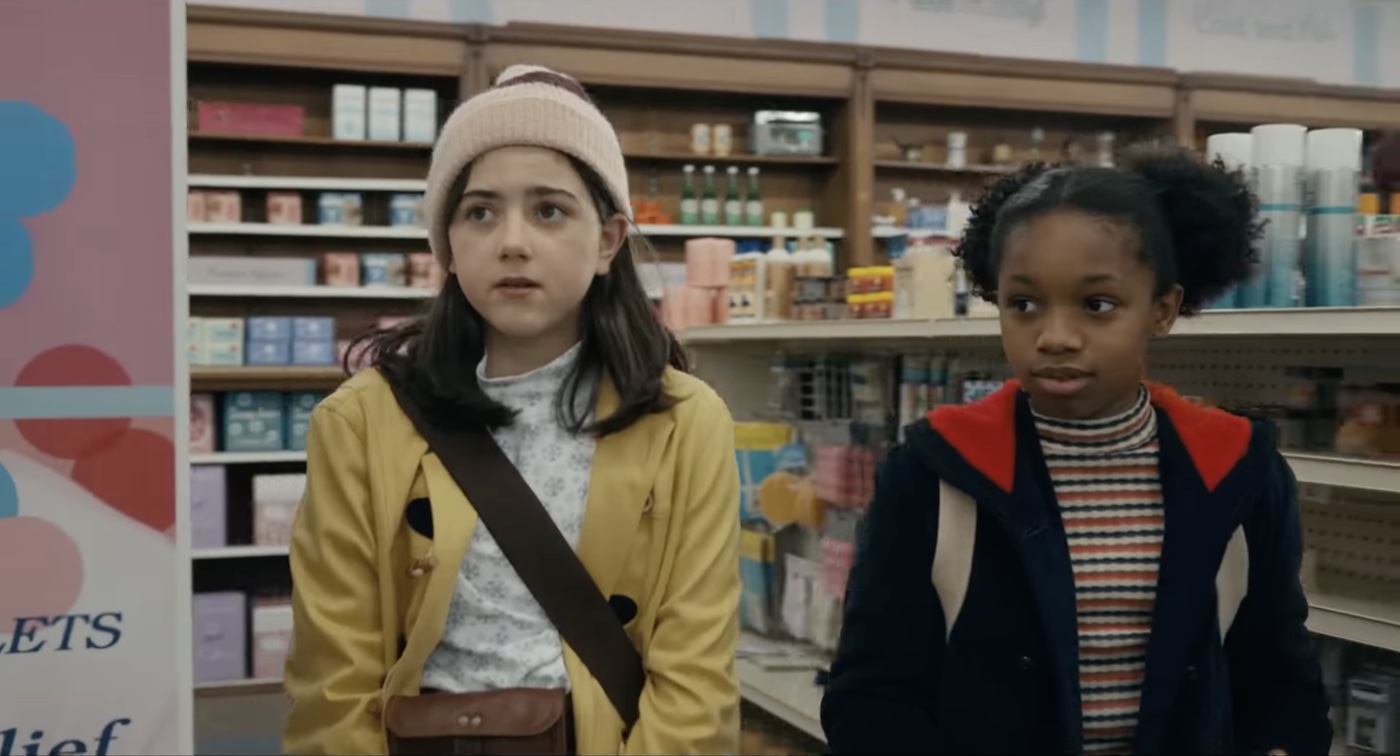
And speaking of awkward — I had no idea how uncomfortable I would be in this movie theater, realizing that I was that weirdo middle-aged man sitting alone in the back while about 25 girls (and a few scowling moms) filed in and saw me there. I wondered if maybe I should leave just so they could relax.
But then, something remarkable happened. As I was so quickly caught up in the joys of the movie, laughing heartily along with everyone else, a girl sitting all by herself at the end of the row kept glancing at me as if I was the subject of some kind of test. And then she began moving gradually down the row — a few seats at a time. I suspect she had reserved a seat just a few seats down from mine and had decided not to take any chances. But by two-thirds of the way through the film, she had noticed that I was laughing at the funny things and cringing at the cringe-y things. We started exchanging wide-eyed glances at the movie’s startling comic turns, as if surprised that we were finding the same things funny. Or maybe her intuition told her that movies like this are best as communal experiences — I don’t know. How would I know about what she was thinking? Anyway, it was a pleasant surprise to have something like company at what turns out to be a movie that should be shared by families and friends. (At least I feel confident that I passed one person’s “Creep Test.”)
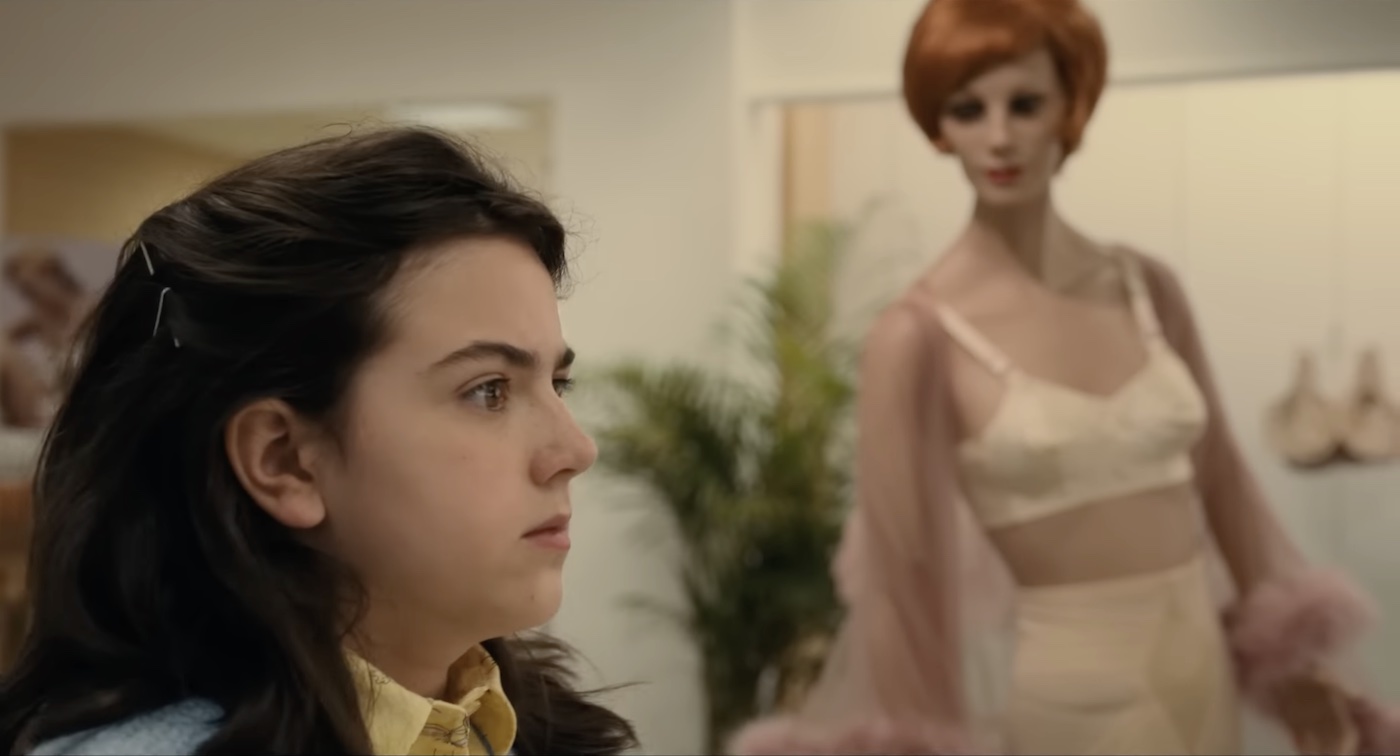
Anyway, Kelly Fremon Craig, you deserve all the raves your movie is getting, and I hope you’ll take pleasure in the genuine enthusiasm that I heard about the film last night when I tuned in to NPR’s Pop Culture Happy Hour. I found this one of the most enjoyable episodes I’ve heard there in a while.
And, if no one has told you this yet, allow me: You would be the ideal director for films based on any of the YA novels by National Book Award finalist Sara Zarr. Trust me. I'd recommend The Lucy Variations or Once Was Lost or my favorite How to Save a Life.
Oh, and if you see Rachel McAdams, please pass this on to her: She’s always impressed me, but I'm realizing that she has slowly and steadily become one of the actresses I trust most in all of movies — across the years (sheesh, almost 20 years of great McAdams’ performances!) and across the genres, from Mean Girls to Slings & Arrows to State of Play… all the way to her adventure with Ben Affleck in the TMCU (Terrence Malick Cinematic Universe). I will watch anything she’s in at this point. Her performance as Barbara Simon is exceptional; she plays it without a hint of condescension or pandering to younger viewers. She helps make this as great a movie about parenting as it is a great movie about being a kid.
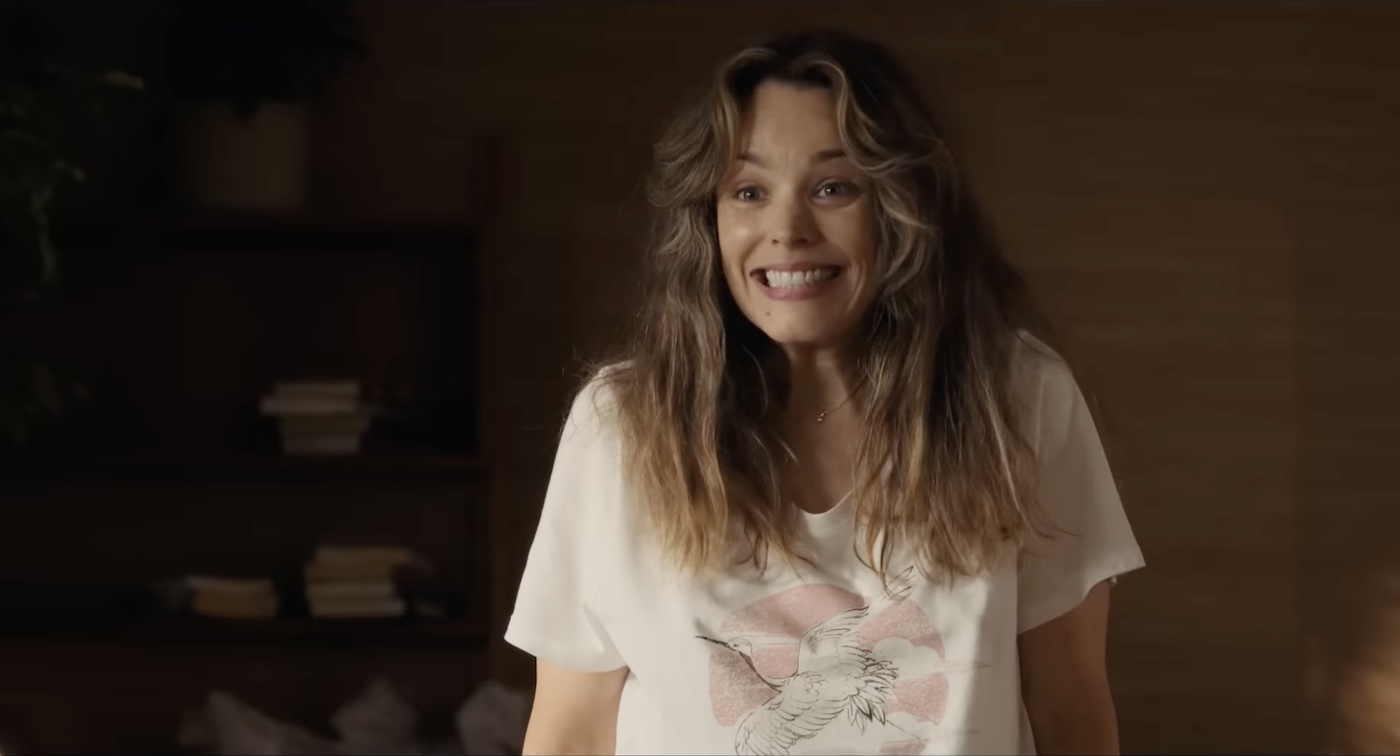
Speaking of Mean Girls, a movie with an outstanding ensemble of young talent, how unlikely is it that I come away with Are You There, God? It’s Me, Margaret impressed by all five of the girls with substantial roles? I'm curious to see whatever any of them do next. There isn't a kid in this movie who doesn't seem like a genuine human being to me, and that's rare.
If there is any character I want to spend more time with, though, it’s Margaret’s teacher Mr. Benedict, played with such warmth and nuance by Echo Kellum. Maybe he’s the most convenient connection for me, at my half-century mark. I want to be Mr. Benedict when I grow up — trustworthy, caring, and wise. I suspect that he’s going to be a role model for Margaret just as he is for me.
[This review was originally published almost three months ago at Give Me Some Light on Substack. Subscribe, and you'll get these reviews while the movie is still brand new!]
They Cloned Tyrone (2023)
This full review is now available for subscribers who support Give Me Some Light over at Substack. It will eventually be published in full here. This post is just a preview.
They Cloned Tyrone tracks the adventure of a drug dealer (John Boyega), a pimp (Jamie Foxx), and a sex worker (Teyonnah Parris) who discover a Twilight-Zone-brand conspiracy at work in their neighborhood. The weirdness has been happening for a long time, but they’ve been too deeply entangled in the down-and-outness of their demoralizing routines to notice. When someone known to have been murdered in typical gang violence suddenly turns up alive again—well, that’s when these three start asking questions and connecting dots. And this leads them on a circuitous journey of amateur detective work, uncovering mysterious sci-fi elevators and secret laboratories where a network of nefarious agents are running some Matrix-level wickedness.

They Cloned Tyrone explores one of those Black Mirror-style concepts that can serve as a multi-layered satirical commentary, specifically highlighting American brands of racism, economic manipulation, and toxic capitalism. That makes it sound overbearing and unpleasant… and it isn’t. Not at first, anyway. It’s a troubling tapestry, but one sewn with compellingly entertaining threads from Invasion of the Body Snatchers, Night of the Living Dead, Edgar Wright’s Cornetto trilogy, Joe Cornish’s Attack the Block, and—especially in its dingy aesthetics—a whole library of Blacksploitation films. (This neighborhood could really use a visit from Shaft or Foxy Brown.)
This review continues at Give Me Some Light for those who donate to support Overstreet’s writing.
Your mission, should you choose to accept it, is to support Jeffrey Overstreet’s writing at Give Me Some Light.If you subscribe, you’ll get some of his Substack posts in your email, yes. But if you sign up for a paid subscription, you’ll get all of the posts, including posts like this one that include his in-depth reactions to movies he’s just seen.
Rye Lane (2023)
[This review was originally published three months ago at Give Me Some Light on Substack. Subscribe, and you'll get these reviews while the movie is still brand new!]
Maybe I’m just a sucker right now for movies that begin with grief and end with joy. I don’t know. But on the date night when Anne and I took a chance on Rye Lane — now streaming on Hulu — the evening very quickly felt like a celebration of a long overdue springtime. The weather outside was frightful, but we found this jaunt around South London just so delightful.
I’d first heard the buzz from Sundance. That doesn’t mean what it used to, by the way — it just means that a few of my students watched streaming-access features from the film festival right here in Seattle. And for one in particular, this was a highlight. “I may have already seen my favorite movie of the year!” he announced.
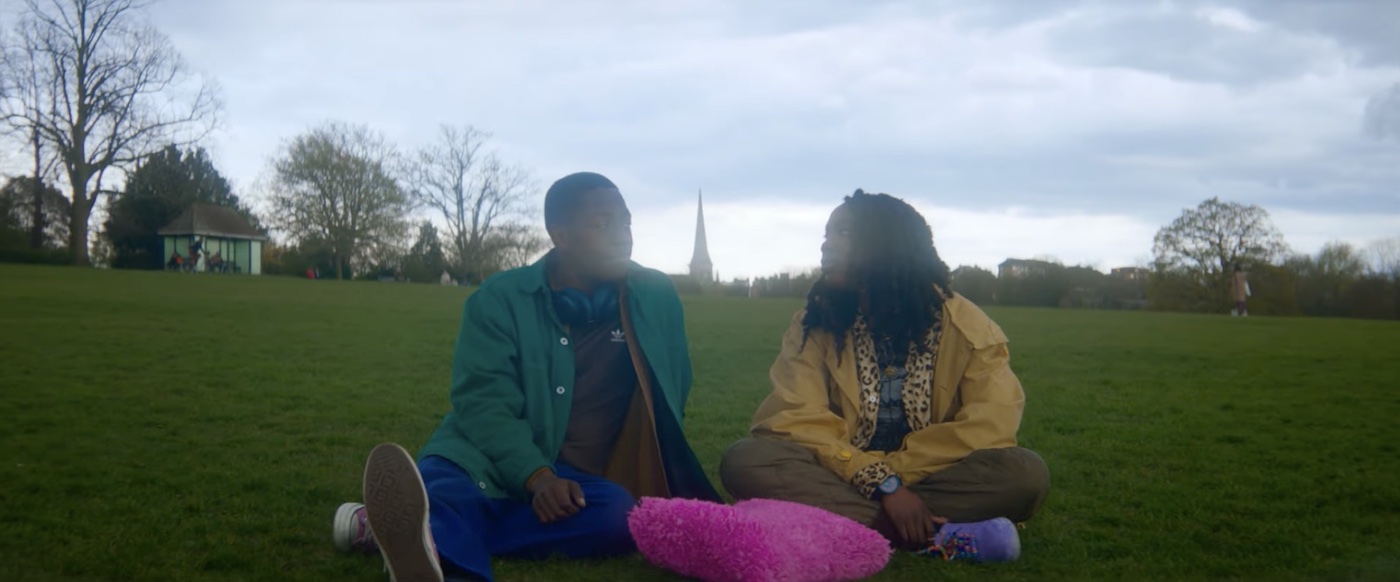
In hopes that I might be pleasantly surprised, I avoided detailed reviews until the Hulu debut. And I got to experience the joys of Raine Allen Miller’s debut rom-com without any preconceived notions about where it would take me — except that I’d been splashed by a wave of Before Sunrise comparisons.
And okay, sure: A young man and a young woman meet and meander and talk a lot. That happens in Before Sunset, too. And there's more than one winking allusion to the last line of that movie's sequel — "Baby, you're gonna miss that plane." But that's the extent of it. Instead of travelers from two different countries meeting and exploring somewhere else, their sexual tension rising to a fever pitch, we get two Londoners meeting in a unisex bathroom and adventuring around the city together, fighting the break-up blues with caper comedy and cutesy goofball mishaps.
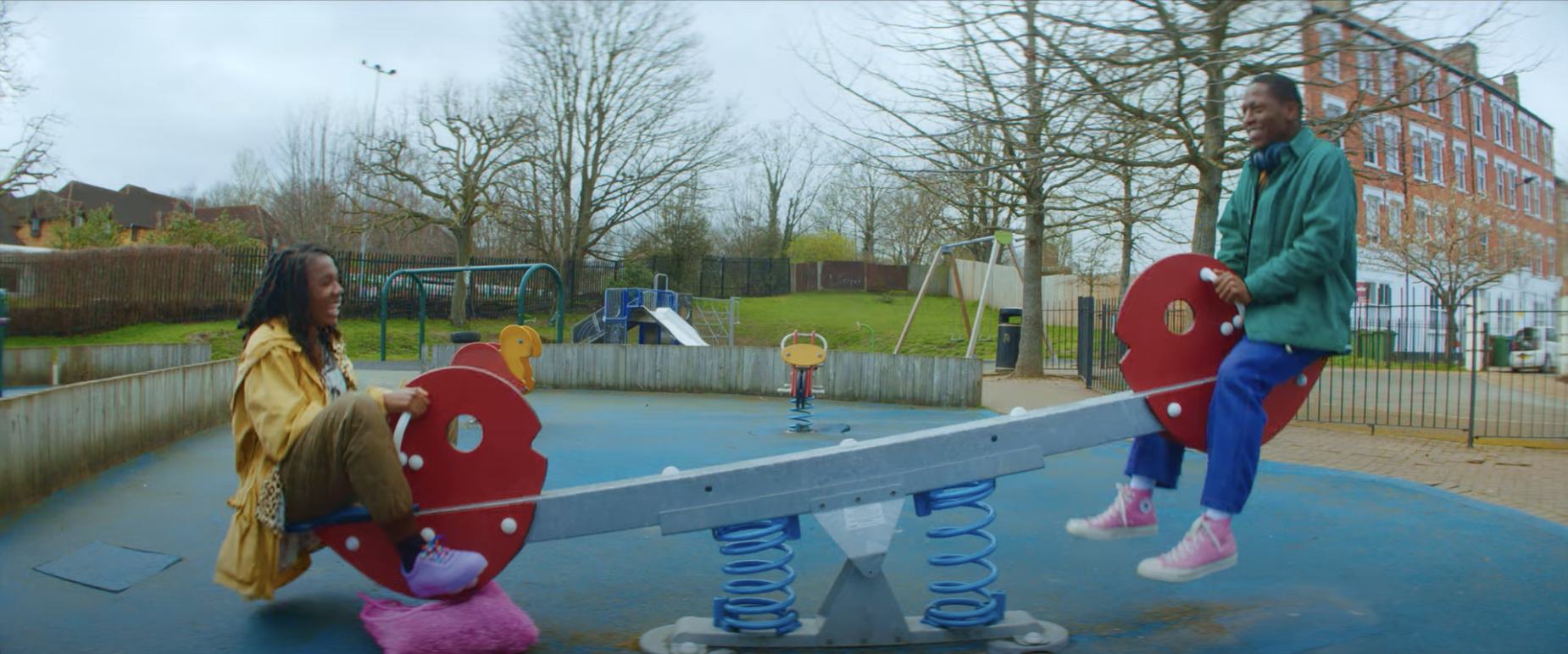
This is much more calibrated for crowd-pleasing than any Richard Linklater love story. Rye Lane isn’t really intent on introducing us to real-world human beings with their complexities and nuance. It’s a a formula rom-com that loves formula rom-coms—so much so that it includes an eye-roller of an allusion to Love Actually. And its characters are only “complicated” in that they’re stuck in personal crises that would usually suggest a rebound relationship is a bad idea. But that’s all fine, as it juices up the routine with audacious aesthetics, some flipped genre cliches, some reversals of expectations, some solid laughs, refreshingly efficient editing, a groovy playlist, and show-no-mercy silliness. In The Irish Times, Donald Clarke writes, “The structure could hardly be more traditional, or the final romantic gesture (truly delightful) more in line with the gospel of Wilder and Lubitsch. But the bebop cutting and the busy mise-en-scène ensure the audience is forever on an agreeable edge.” If this genre is your jam, I think you’re unlikely to find an entry more engaging in 2023.
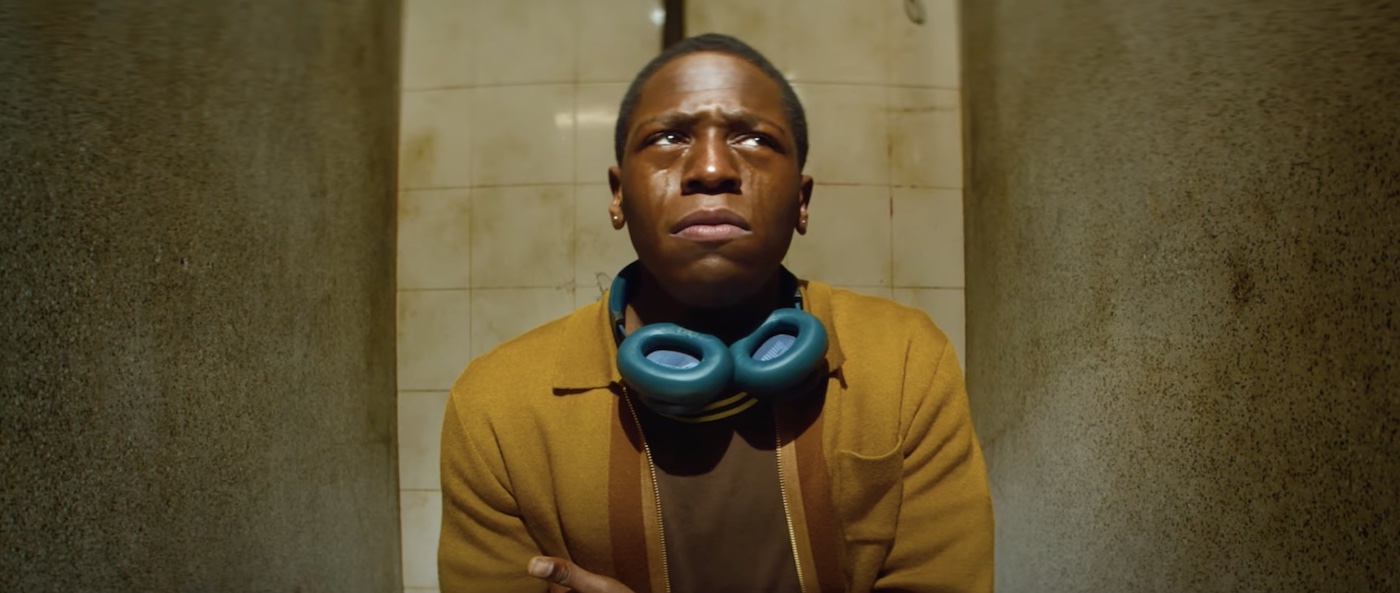
Miller’s movies sets up its meet cute in a unisex bathroom, where Dom (David Jonsson) is sobbing over Instagram evidence that his dream girl has left him for his best friend, and where the aptly named Yas (Vivian Oparah) is a manic pixie Yas Queen! girl seems eager to find a broken-hearted boy she can pep talk in order to dodge her own troubling business. Here’s where the movie dips a toe in Before Sunrise’s waters: Yas starts walking with Dom, poking and prodding his broken heart with questions, challenging his self-destructive paradigms, and prying open his eyes to the realm of possibility.
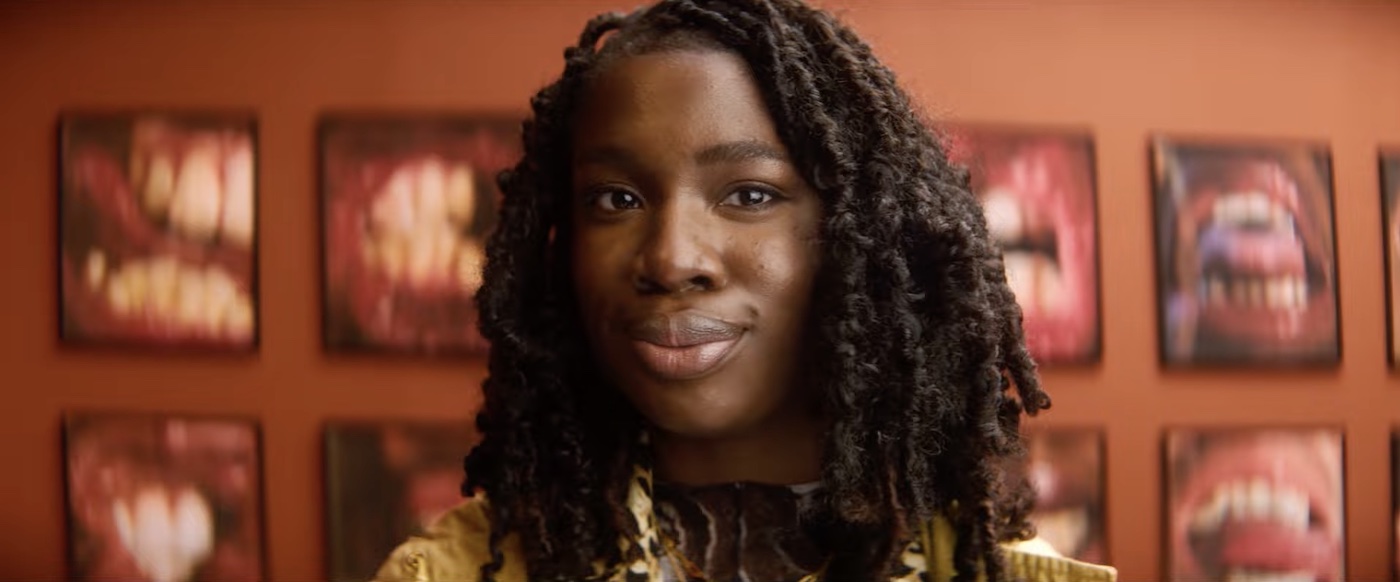
In her review at RogerEbert.com, Peyton Robinson writes that Rye Lane “leans into the awkwardness of its characters, earning its empathy with reality instead of fantasy.” That’s true. Despite the color-scheme being turned up to “11,” and the contexts suffering an overdose of quirk, there is something about these conversations that seems familiar. “This is a romance you may know,” Robinson adds, “not one you only see in the movies.” I would suggest revising that: This is a relationship I know. The fact that it blooms into romance feels more like a requirement of the genre. I might have enjoyed the film even more if the storytellers had mustered the courage to develop something more unexpected and plausible: a one-of-a-kind friendship.
But then, so many of our experiences at the movies are influenced by our experiences outside the movies. I had a good female friend named Melody who gave me similar pep talks almost 30 years ago when I thought a woman of my dreams had ruined my love life forever. At the time, I appreciated Melody’s efforts, but couldn’t yet believe in her reassurances that this might be a good thing, a chance to find something better. Now I look back with gratitude for her attention and her time, even though our conversations never veered into romance. (She was already on her way to the altar with somebody else, and I was too hurt to imagine anything more.) Why not make movies about relationships and conversations like that?
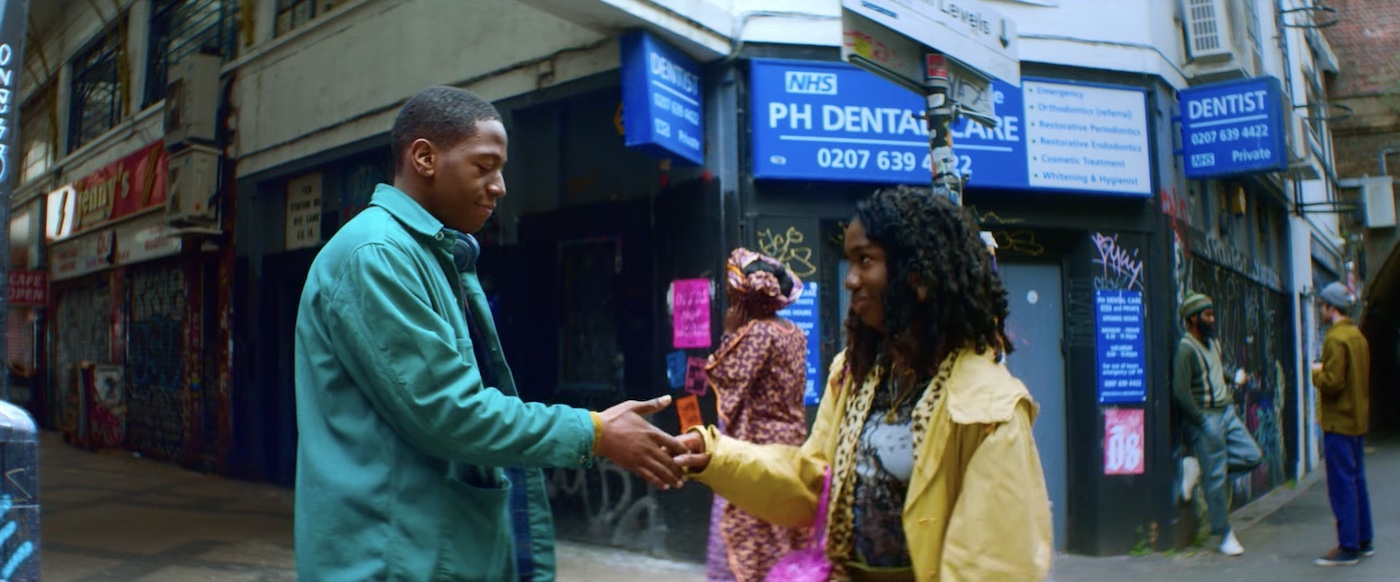
So, it’s not Yas’s motivational therapy that tests my suspension of disbelief here. And it’s not Dom’s interest in Yas, as she’s flaunting dangerous levels of charm. She’s a fireworks show that lights up his sky in his darkest hour. (The movie seems calibrated to make Oparah a major star; I doubt Jonsson's career will take off like hers does.)
What boggles my mind is how Yas could fall for Dom with Dom in this condition. And so quickly! As they wander the streets of South London, as Yas convinces Dom to challenge his ex and his friend for their mad cruelty, and as she then convinces Dom to help her steal back some treasured vinyl from an ex of her own, there’s enough going on that viewers might not have the time to ask themselves: What does she see in him?

I mean, I get it: We can never know what draws some people together. But my puzzlement over why she makes so many first moves here ... it became an unscratchable itch. Your enjoyment of this movie will depend largely on whether you think these two can fall in love. That’s where I’m having trouble.
Yes, as anyone who’s seen it will tell you, the leads are adorable together. But the most inspiring love story here is the one between director Raine Allen-Miller and South London, which is so alive with bold colors, lived-in textures, international flavors, and spicy aromas. I'll follow her into any genre just to see what other neighborhoods she's excited about.
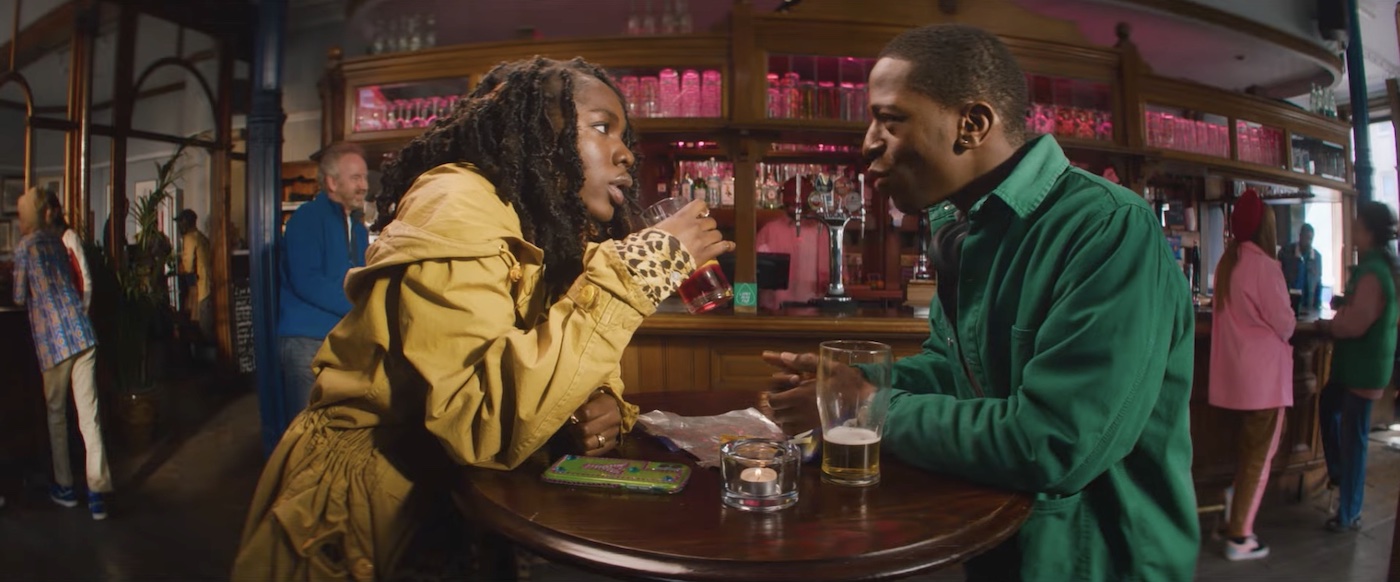
So, re-up your subscription to Hulu, pop the popcorn, poor two glasses of wine, and have a good date night with Rye Lane. Just don’t set your expectations to Before Sunset levels.
For some reason, as the movie was playing I kept expecting to see John Boyega and other cast members from Attack the Block. This feels like a romantic comedy that could take place in the same world as that fantastic alien invasion flick. Come to think of it, I’d love to see Jonsson and Oparah stealing scenes in the upcoming Attack the Block sequel. They'd fit right, even if they played the same characters. Maybe Edgar Wright is a better comparison here for Raine Allen-Miller than Richard Linklater.
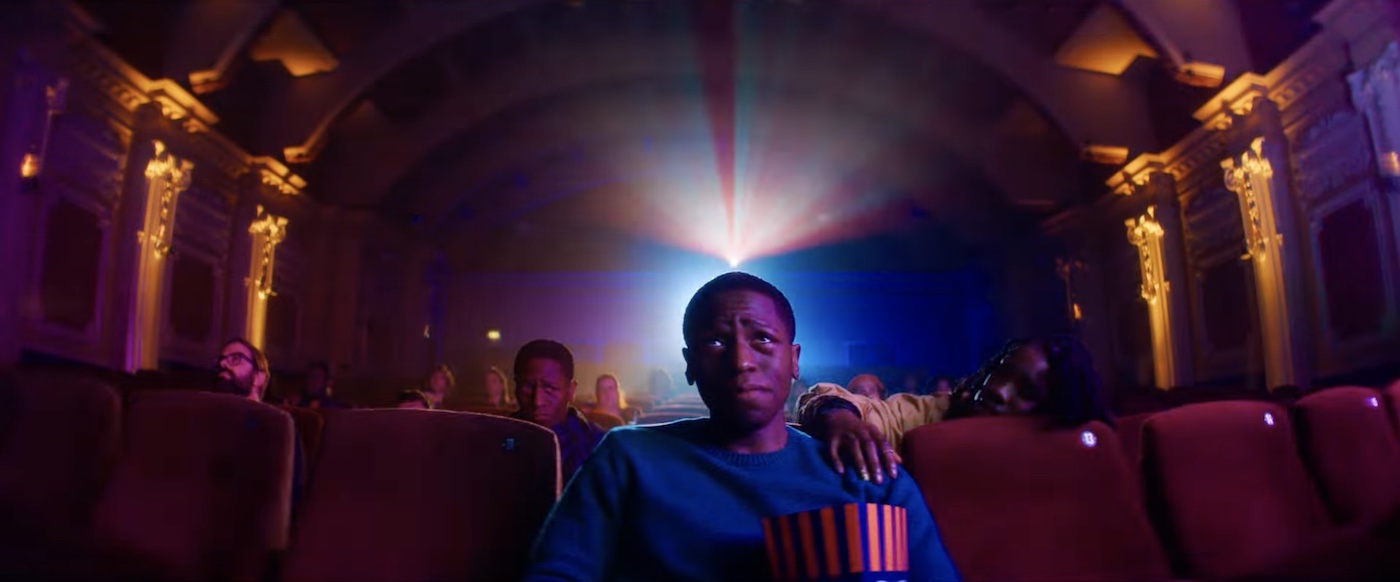
I’m grateful for this bright, shiny, stylish good time at the movies. It comes crashing into my season of disappointment with the same high spirits that Yas brings to the broken-hearted Dom. I needed the colors. I needed the laughs. I needed the music. I’m going to drive to work and back with this movie's playlist for a while, and I expect the colors of my commute will suddenly seem hyper-saturated. These days, a little color therapy wouldn’t hurt.
What others are saying:
Esther Zuckerman at indieWire:
Allen-Miller packs every frame with sumptuous color. Some of it comes from the landscape of Peckham — the bright green of the park grass or the multihued graffiti on the street or the painted gates on the shops of Rye Lane Market — but some of it is purely of her own invention. The karaoke sequence is a mix of neon greens and pinks and purples.
Alison Willmore at Vulture:
Rye Lane was filmed in the spring of 2021 and has the unmistakable energy of the first nice day of the year, when everyone in a city is out and about, whether it’s to run errands, to hang out in the park, or to meander the way Dom and Yas are. The movie’s London is vibrant, random, and immigrant-driven, and it bustles in the background of every shot, whether it’s children shooting a TikTok dance, a shirtless man leaning out a terraced-house window, or a Tai Chi class full of senior citizens in the park. Rye Lane asks you to fall in love with Dom and Yas, but failing that, it will have you hopelessly smitten with its South London setting and with that feeling of having the day open and nothing to do but wander and see what may happen.
Michael Phillips at The Houston Chronicle:
Even when the screenplay favors an arch quality when we wouldn’t mind a looser, easier-going touch — it’s as stylized and storybook-ish a vision of modern London as the delightful “Paddington” films — the actors, chiefly Oparah and David Jonsson, make for highly engaging company.
Mission: Impossible — Dead Reckoning (2023)
[This full review is now available for subscribers who support Give Me Some Light over at Substack. It will eventually be published in full here.]
The sun has officially set on Indiana Jones.
And what a disappointing sunset it was. Moviegoers fell in love with that whip-cracking, wise-cracking, Nazi-blasting, fedora-wearing archaeologist because of a 1-hour 55-minute cliffhanger classic of standard-setting stunts and practical effects. Light was real light. Actors were real actors. And the feelings we felt were as much about discovery and awe as they were about action. Every scene and every shot contributed to our suspension of disbelief.
We say farewell with Indiana Jones and the Dial of Destiny: an unnecessary, over-long (2 hours 34 minutes) marathon of poorly lit action and obviously half-animated characters in which there isn’t much to care about and everything feels familiar. Almost every scene and almost every shot contributes to our disbelief.
And then — speaking of disbelief — things take a turn for the much, much worse. Like the sputtering sound of air being let out of a balloon, Indy speaks the single-most disheartening line of dialogue in the entire franchise. When asked what he has learned in his many decades of adventure, Indiana Jones actually answers with words alarmingly similar to the “wisdom” delivered by the conductor of The Polar Express: “It’s not so much what you believe — it’s how hard you believe it.”
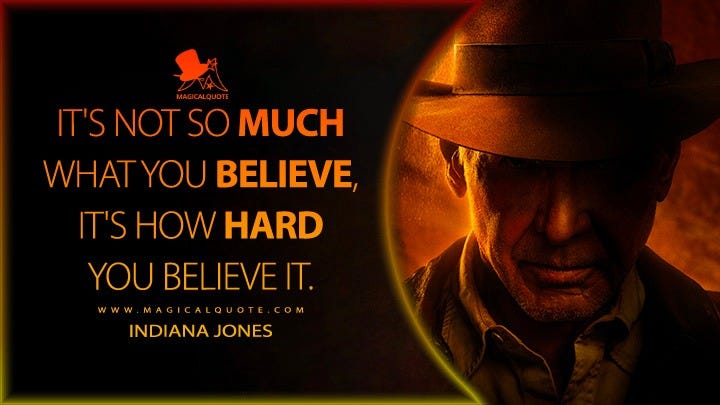
Wow — the QAnon folks are going to love that! Truth? Doesn’t matter. What matters is that you commit yourself to whatever nonsense you choose! It’s just as worthwhile to commit yourself wholeheartedly to lies than to the truth, so long as you walk hard, young man!
Imagine Indy reading the hate-screed manifestos of mass shooters, or the watching the trials of the January 6th insurrectionists, and responding with such dangerously irresponsible nonsense. Would we ever care to follow him anywhere again?
So, yes… it’s an anticlimactic sunset for Indy, at best. If I could turn back to the clock, I would closed the series at the end of Last Crusade… or maybe even at the end of Raiders.
But Mission: Impossible movies?
Well, the sun may still be rising on director Christopher McQuarrie, Tom Cruise, and company. While my frustrations with certain aspects of the franchise are growing, I think it’s possible we may yet see the best this series has to offer. Here is a cast of characters who believe in Capital “T” Truth, and who will dedicate their lives to making sure that the Truth wins out over deception.

Unlike the storytellers and action-scene designers of the latest Indy film, these filmmakers are showing us that they’ve learned some of the best lessons that Raiders of the Lost Ark has to offer: I may dream of a series that has greater sense of spirit (like Raiders did), something to complicate its “Scientological” worship of a white male hero (like Raiders did), and women less likely to worship the leading man (like Raiders did). But I love that the M:I company want their audiences to be surprised and amazed and laughing and getting all fifteen bucks’ worth of adventure. They’re bringing much of what is necessary to inspire that Raiders kind of wonder: real light, real stunts, real actors, and a compelling musical score that we can actually hear through the chaos (like Raiders did). They want us leaning forward, slack-jawed, giddy, pounding the arms of our chairs to the beat, and asking “How did they do that?!”
The stage is set for Dead Reckoning Part Two to be the apex of the sun’s arc on this series — but it is difficult to imagine how Part Two matches Part One for relentlessly jaw-dropping action. This, like Fallout before it, is showing every other action franchise — including Bond and the MCU — how things should be done.
What’s it about? ...
This review continues at Give Me Some Light for those who donate to support Overstreet's writing.
Your mission, should you choose to accept it, is to support Jeffrey Overstreet’s writing at Give Me Some Light. If you subscribe, you’ll get some of his Substack posts in your email, yes. But if you sign up for a paid subscription, you’ll get all of the posts, including posts like this one that include his in-depth reactions to movies he’s just seen.
The Balcony Movie (2022)
[This review was originally published at Give Me Some Light on April 15, 2023.]
What a joy I’ve just discovered. And you can too.
At first, I thought that Pawel Łoziński’s new documentary The Balcony Movie was a pandemic project. And the farther I got into the film the more I wished I could turn back the clock and be more creative with those first two years of COVID isolation. Why not just set up a camera and a microphone somewhere and make something of what happens right in front of you?
All this Polish documentarian did, after all, was set up a camera and a microphone on the balcony of his second-story apartment and interrupt passersby with questions about their circumstances, their dreams, their fears, and their takes on the meaning of life. And what he captured may seem haphazard at first, but it grows into a sort of improvisational poetry as various pedestrians respond to his casual questioning by ignoring him, taking offense, begrudgingly agreeing to play along, giving him more than he probably wanted, immediately exposing their hearts’ open wounds, or challenging him with counter-questions.
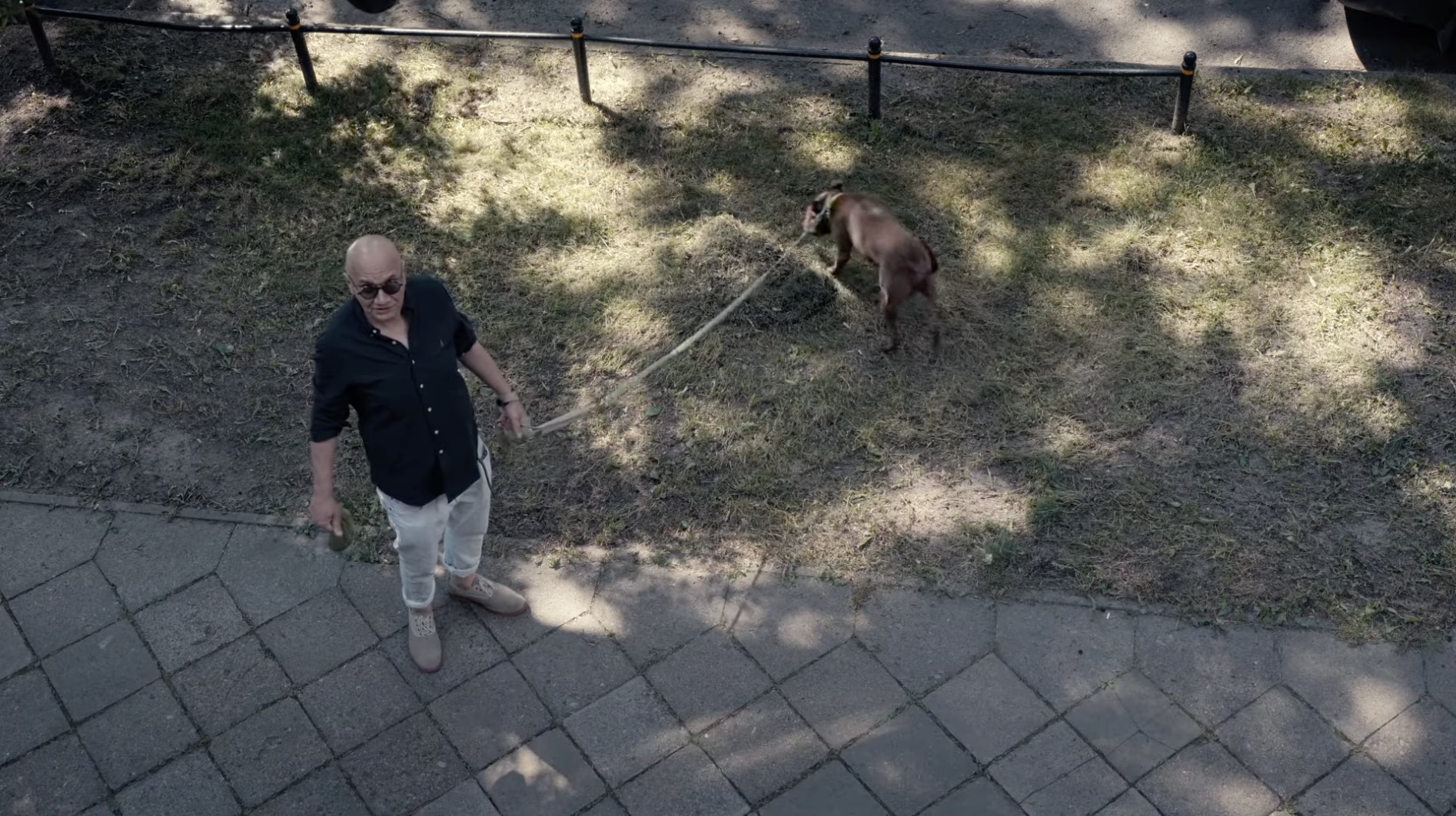
Increasingly curious, I started reading and learned right away that this project began in 2018 before the tsunami of COVID required lockdowns around the world. I’m not familiar with Łoziński’s earlier work, nor have I seen anything but his apparently acclaimed filmmaking father Marcel Łoziński, but somehow this fact makes me doubly curious about these filmmakers. If they have these creative instincts without having to resort to them out of necessity, what other kinds of provocative pictures might they have made?
It seems like such an ordinary stoop on which a filmmaker might set up shop, but what transpires is remarkable. I kept thinking about Wim Wenders’s watchful angels over Berlin in Wings of Desire. (I know, I know — I say that a lot.) But think about it: Here, we can hover over unsuspecting Warsaw citizens and, if we’re lucky, catch them in candid confessions or unguarded flashes of temper or humor. We see representatives of every living generation; men and women in love; women grieving lost husbands or raging about their affairs; men struggling with being thrown out of their own marriages, and one grieving the loss of a male partner that he’d had to pretend was his brother; alcoholics grieving their addiction; ex-cons grieving their mistakes; dog walkers; and members of Łoziński’s own family.
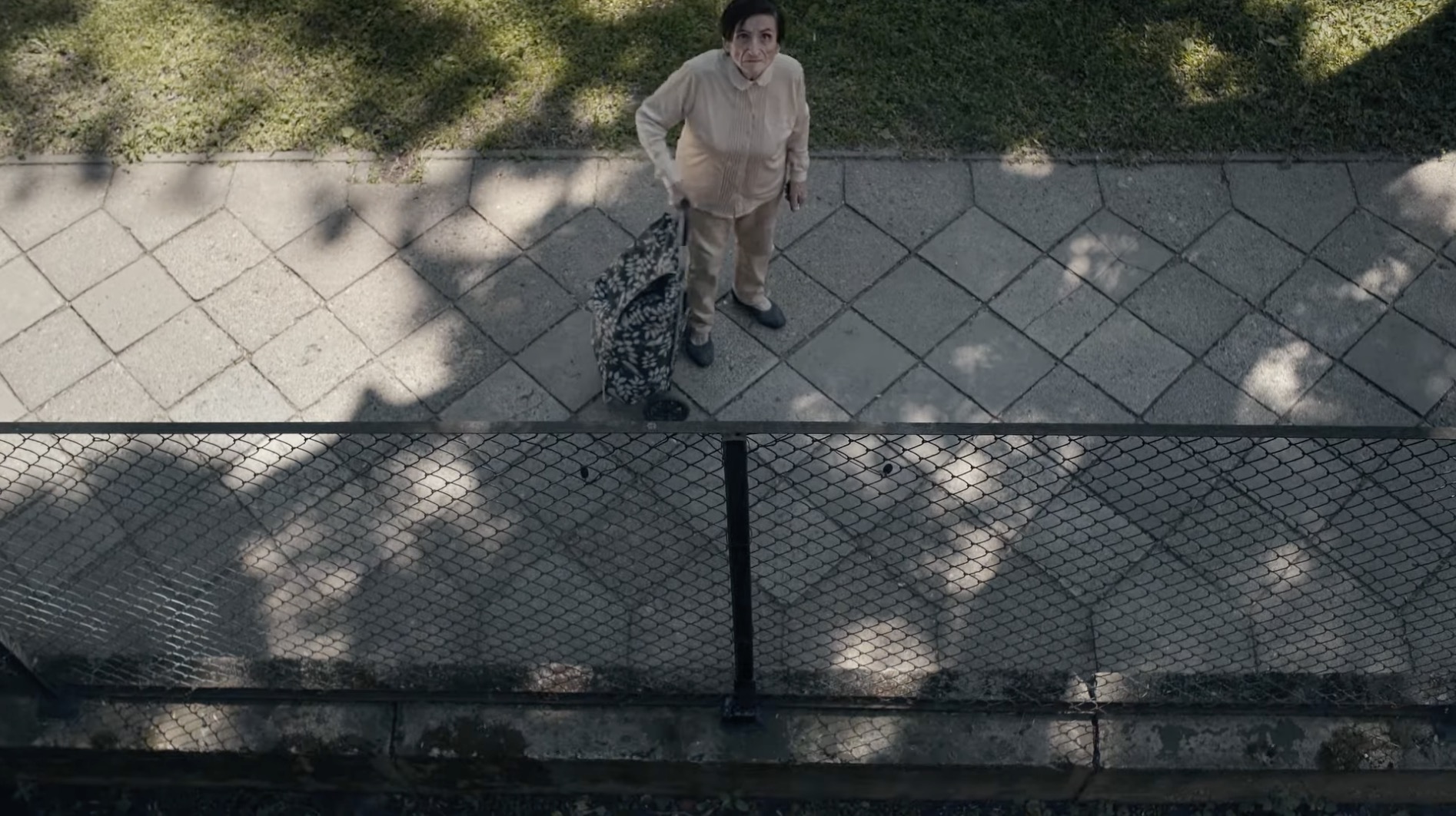
At Filmmaker, Łoziński says,
I was always interested in what the passersby under my balcony have in their heads and hearts. Sometimes I sat there, privately without a camera, and overheard what they were talking about. The film came from simple curiosity: Who are they? Where they are going and what is the meaning of their lives? It was an experiment for me and for them. I asked myself, Is there a chance to meet an entire cross-section of people by putting the camera in a fixed place? I was trying to change the rules of the normal documentary game – this time it’s not me following the people with my camera around the world, but me waiting for them until they enter my frame.
The authenticity, the inimitable qualities of these particular human beings — the fact that they are so compelling, and that the film becomes so absorbing, is something of a lesson: We could be out there, on our own porches, in our own coffee shops, walking our own sidewalks, and, if we learn to look through lenses of possibility and generosity, we might find friends in neighbors from here and faraway. Just yesterday, working on another writing project, I was trying to remember the actual, literal neighbors that I had when I was a child. I found them all so mysterious, and imagined so many stories. This made me wish I’d been braver in meeting them. I should pay attention to that. I have actual, literal neighbors now with whom I’ve never even made eye contact.
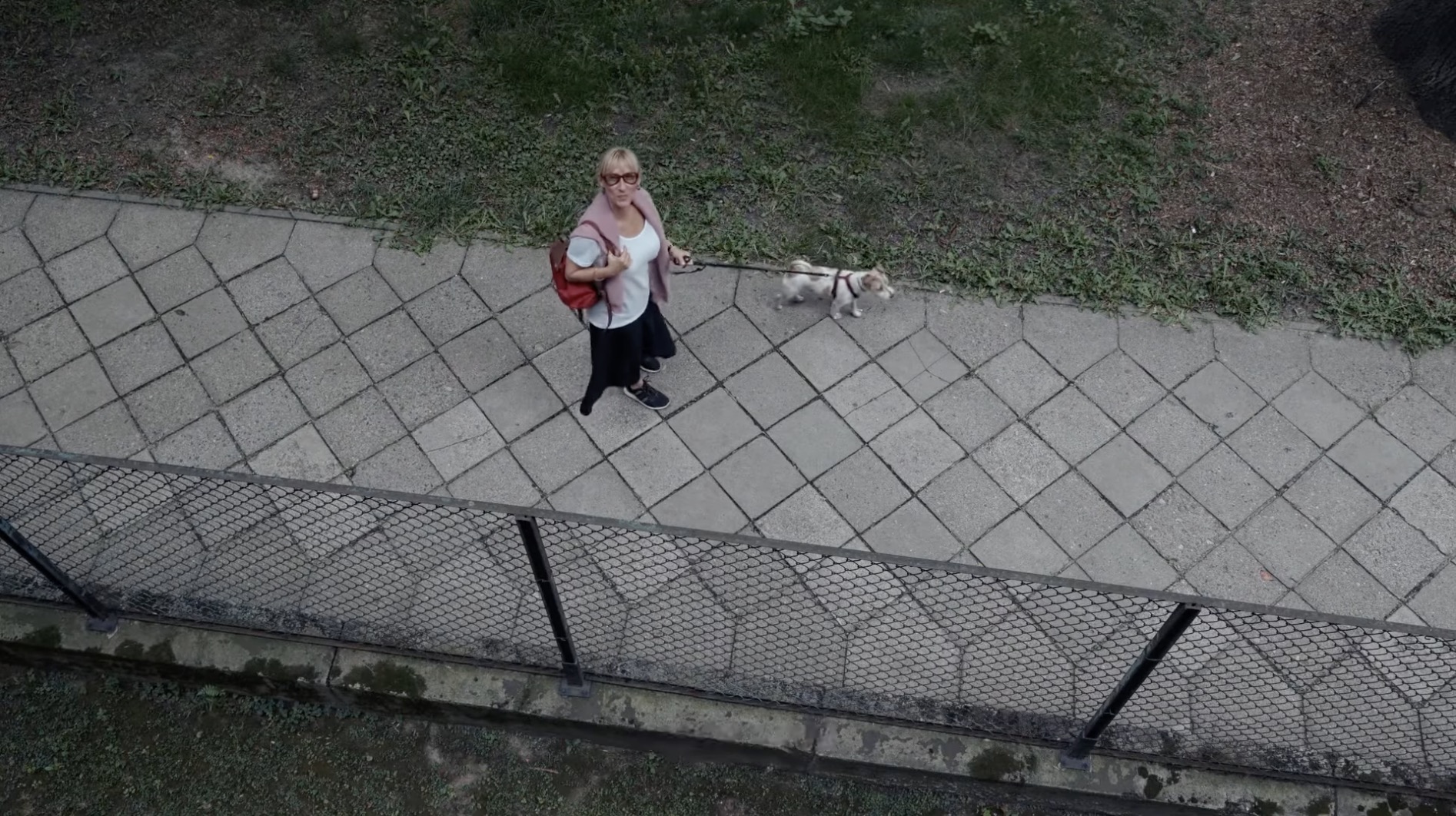
Is The Balcony movie great cinema? That’s a more complicated question. Łoziński isn’t just some guy with a camera. He worked as an assistant for my favorite director of all time: Krzysztof Kieslowski. He knows things. And he does some remarkable things here in editing, in balancing this film between seasons, in selecting from his most rewarding interactions so that there are some threads that weave these seemingly arbitrary moments into a meaningful tapestry. I doubt that The Balcony Movie will ever become a staple of film-studies syllabuses, but it belongs in any expansive survey of documentaries as an example of what can be possible when a filmmaker is open to playfulness and improvisation. We end up with a document of a time and a place that nobody else could reproduce if they tried. The people of 2018–19 Warsaw, Poland are a whole lot more real to me now, here, in Shoreline, Washington 2023, than they might have been otherwise.
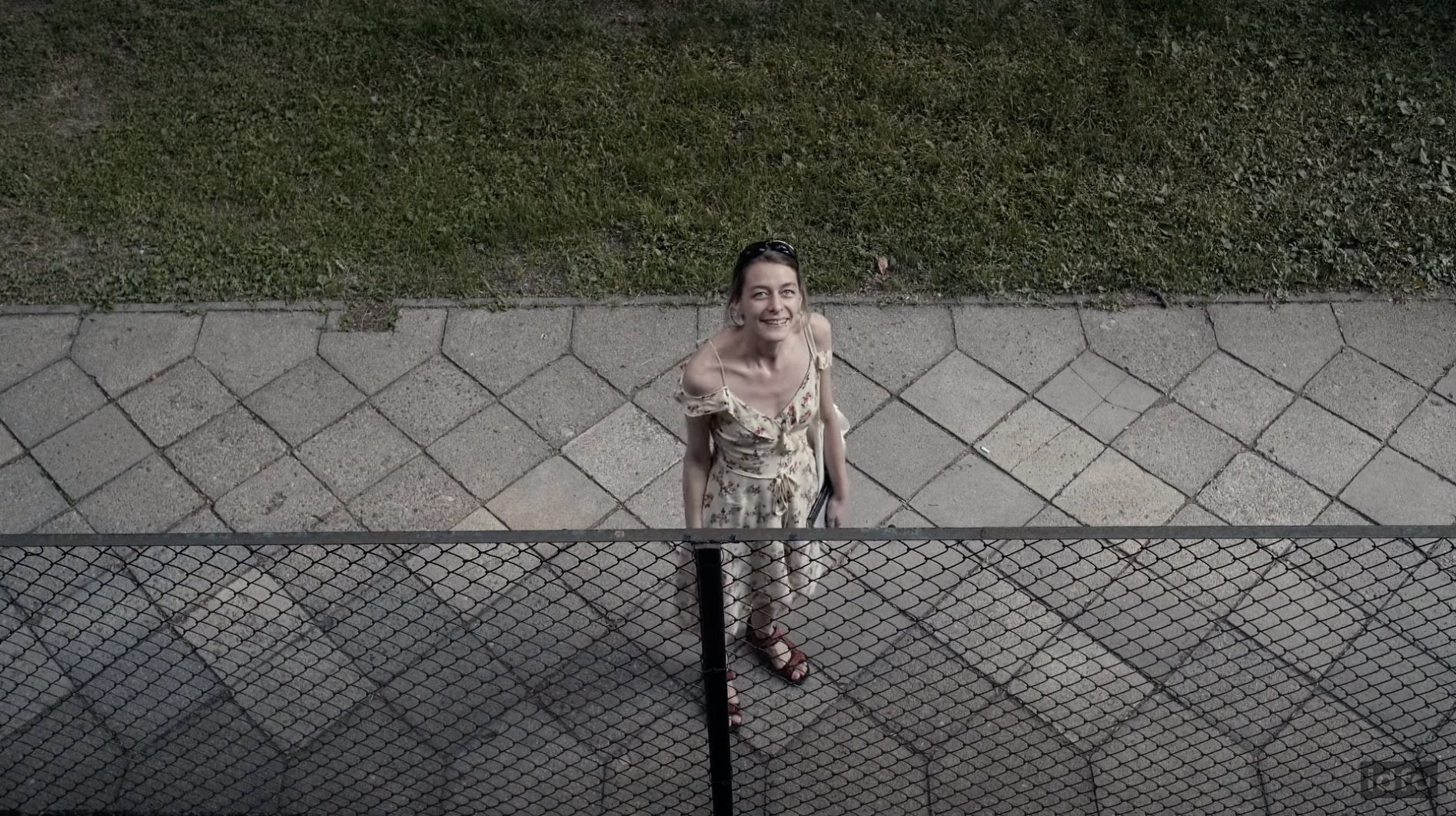
And I should make a record here of something significant: I don’t think I can recall a moment in all of my moviegoing history in which I was moved to tears faster by a character or a documentary subject than I was by one of Łoziński’s unexpected visitors. I won’t say the person’s name — I want you to discover her for yourself. But our host is good-humoredly looking for “a hero” for his film. And, against heavy odds, he finds one I will never forget.
My thanks to Ken Priebe for persisting in recommending that I seize the opportunity to watch this on MUBI — a streaming service so extravagant with essential viewing these days that I just can’t keep up. Subscribe, even if only for a month, so you can see this and several other recent wonders, like What Do We See When We Look at the Sky?, my #3 favorite film of 2022.
How to Blow Up a Pipeline (2023)
[This review was originally published at Give Me Some Light on April 10, 2023, while this film was still in theaters.]
I recently showed a class full of undergraduates the Coen Brothers’ 1988 comedy Raising Arizona. You probably know the film, and perhaps you remember this moment:
Furniture salesman Nathan Arizona (Trey Wilson) has offered a cash reward for the rescue of his kidnapped infant son Nathan Junior, and an opportunistic bounty hunter has blown like a tumbleweed into his office. This massive, muscle-bound, tattooed motorcyclist is Leonard Smalls — a.k.a. “The Lone Biker of the Apocalypse.” And Smalls isn't here to take the offer: He’s here to bargain.
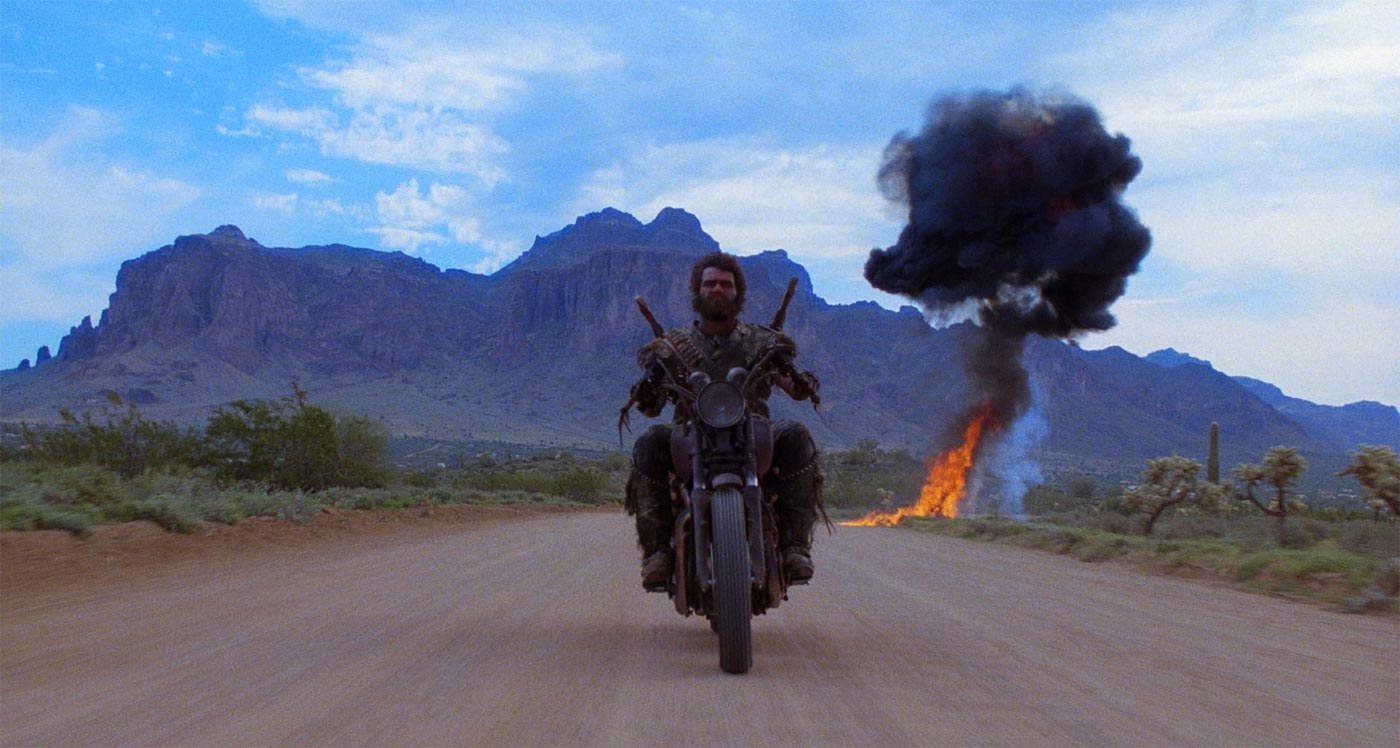
Irked, Arizona replies that Smalls should take his deal or get out. But Smalls isn’t finished. He says he’s only asking for a “fair price” — one that “the market will bear.” He reveals that he is, himself, a survivor of a black market for babies, and then adds, “There are people — and, mind you, I know ’em — that’ll pay a lot more than $25,000 for a healthy baby. … I’ll get the boy regardless. And if you don’t pay, the market will.”
Smalls has come right out and said what so many other businesses conceal behind deceptive rhetoric: He would find a stolen baby and, instead of returning him to his grieving parents, he would sell the baby on the black market himself. And make a fortune. And why not, in a country that justifies so much harmful activity in the name of “the pursuit of [personal] happiness”?
Students, to their credit, were repulsed by this heartless, dollar-driven monster. Surely we can all agree that this is, as Nathan Arizona himself puts it, “an evil man.” He is showing us the dark side of capitalism, the consequences that can come from prioritizing profit above all else. “It’s just business,” some might say. But at what cost?
So here’s a question:
If you think conscience demands that we stop human traffickers, how far are you willing to go to stop them? If weapons prove necessary for intervention and the rescue of vulnerable innocents from fortune-hungry opportunists, will you support that violence as justified?
Now, put yourself in the shoes of the young idealists who join forces in the film How to Blow Up a Pipeline.
The film, directed by Daniel Goldhaber, is based on a non-fiction book of the same title by climate change activist Andreas Malm. The book is a manifesto, really, praised by The Los Angeles Review of Books as “[o]ne of the most important things written about the climate crisis” and a “profoundly necessary book.” The film takes Malm’s propositions and imagines a narrative about what a real-world rebellion against heartless capitalism might look like.
The team of would-be Avengers who plot a rebellion in How to Blow Up a Pipeline don’t inspire much confidence. Young Xochi (Ariela Barer) might come closest to qualifying as the Brains of this outfit. She’s already posting mission statements on the windows of luxury cars and slashing their tires. She’s angry. When she buried her mother, who died in a heat wave, Xochi could look back over her shoulder and see evidence of the cause: plumes of smoke rising from a factory. But the Brawn is certainly Dwayne (Jake Weary), who is losing all patience with oil companies as they force their way onto his family property to chart the course of a pipeline.
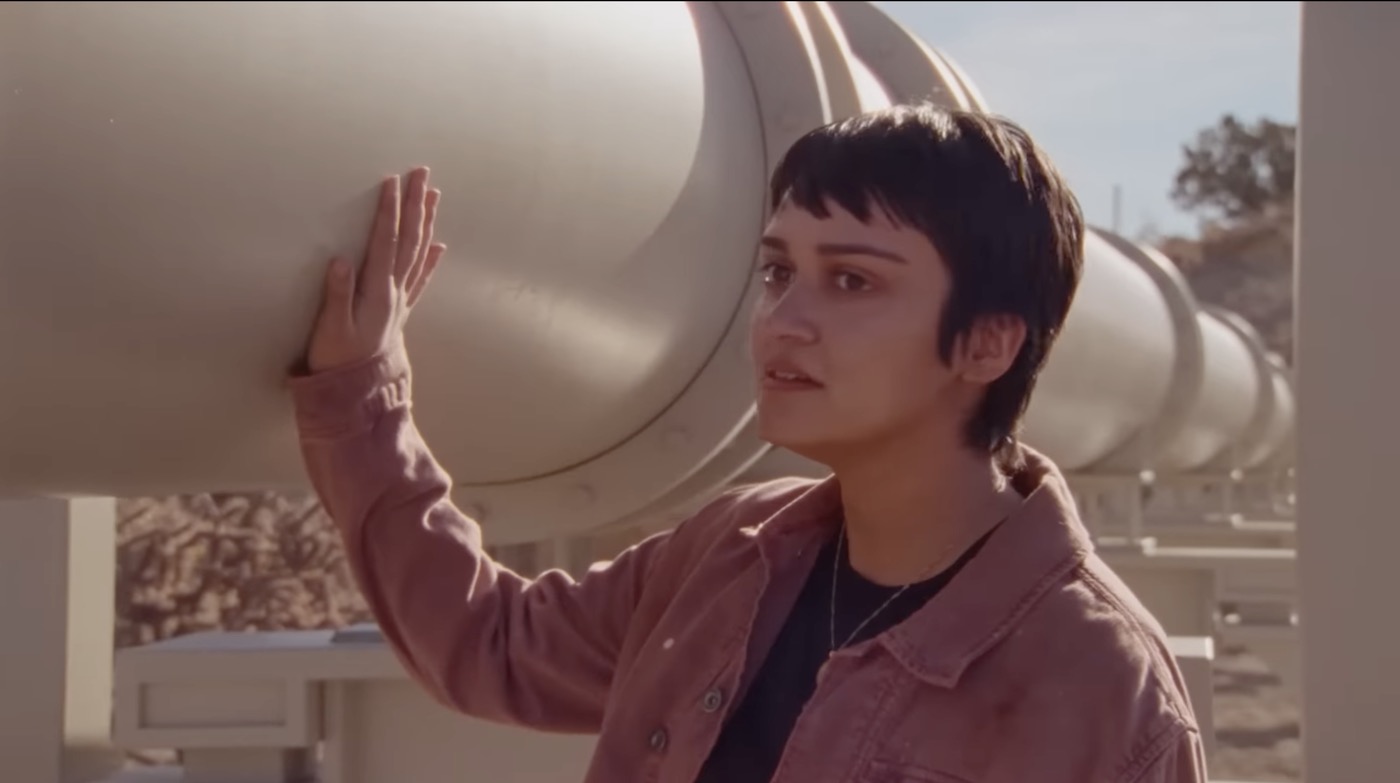
But a plan like this has a lot of moving pieces, and so they need a lot of help. Xochi brings her college friends Shawn (Marcus Scriber) and Theo (Sasha Lane) on board. (If you'd told me that this takes place in the AHCU — the American Honey Cinematic Universe — and Sasha Lane is still playing the same character from that Andrea Arnold film, I might have believed you.) Shawn shares Xochi’s strong convictions, but for Theo it’s even more personal: she’s angry about the chemical causes of the cancer that is killing her. (In a world designed to favor big business over human decency, how’s a young woman like Theo to afford healthcare?) And then there’s Alisha (Jayme Lawson), who signs on reluctantly for Theo’s sake, mostly out of loving loyalty for her dying girlfriend.
Then there are Logan (Lukas Gage) and Rowan (Kristine Froseth) — lovers who look likely to miss their cues in carrying out the plan, probably because they’re too horny or too stoned. If you’re placing bets early on what’s likely to go wrong, you’ll probably pick on them.
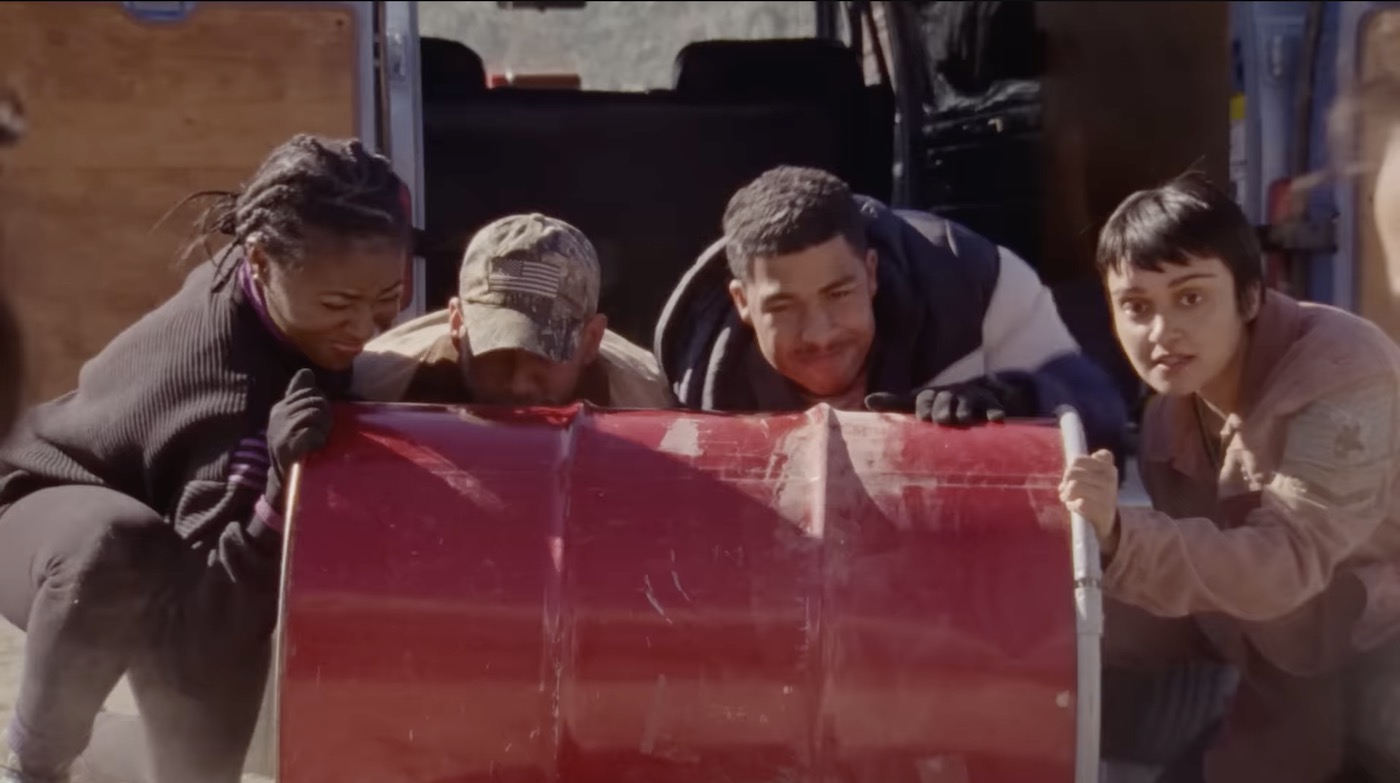
But who can blame this anxious crew for doing their best to make a difference while the rest of the world amuses itself to death? They want a future — a future for themselves and for all who come after them. They believe that the future of Planet Earth has been taken hostage, that it’s being sold to the highest bidder. They see oil companies accelerating even though the oil business is destroying the planet’s climate and propelling Planet Earth headlong into a crisis that humankind cannot survive.
Just as you and I might decide that force is necessary to rescue stolen babies from armed human traffickers, so they have decided that it’s time to blow stuff up to try and save the planet those babies depend on.
They see clearly that it would be mad to do nothing. And, as my students saw it in Leonard Smalls, they see not merely ignorance at work but a sort of demonic villainy. Isn’t violence against a mad murderer an act of self defense? Isn’t their desire to strike at these companies, to hit them where it hurts, reasonable?
If no amount of negotiation is making any difference, and if the oil companies have strapped a ticking time bomb to the planet, what harm is there is strapping a ticking time bomb to their oil pipelines? Why not try to blow up their unethical operations before they blow up an inhabitable earth?
Ah, but this band of heroes are acting in violation of laws — laws set up to protect businesses and business owners at the expense of, well, everyone else. Thus, as they conspire to try to save humankind, they are sure to be branded “terrorists.”
“If the American empire is calling us terrorists,” says Michael, “then we're doing something right.”
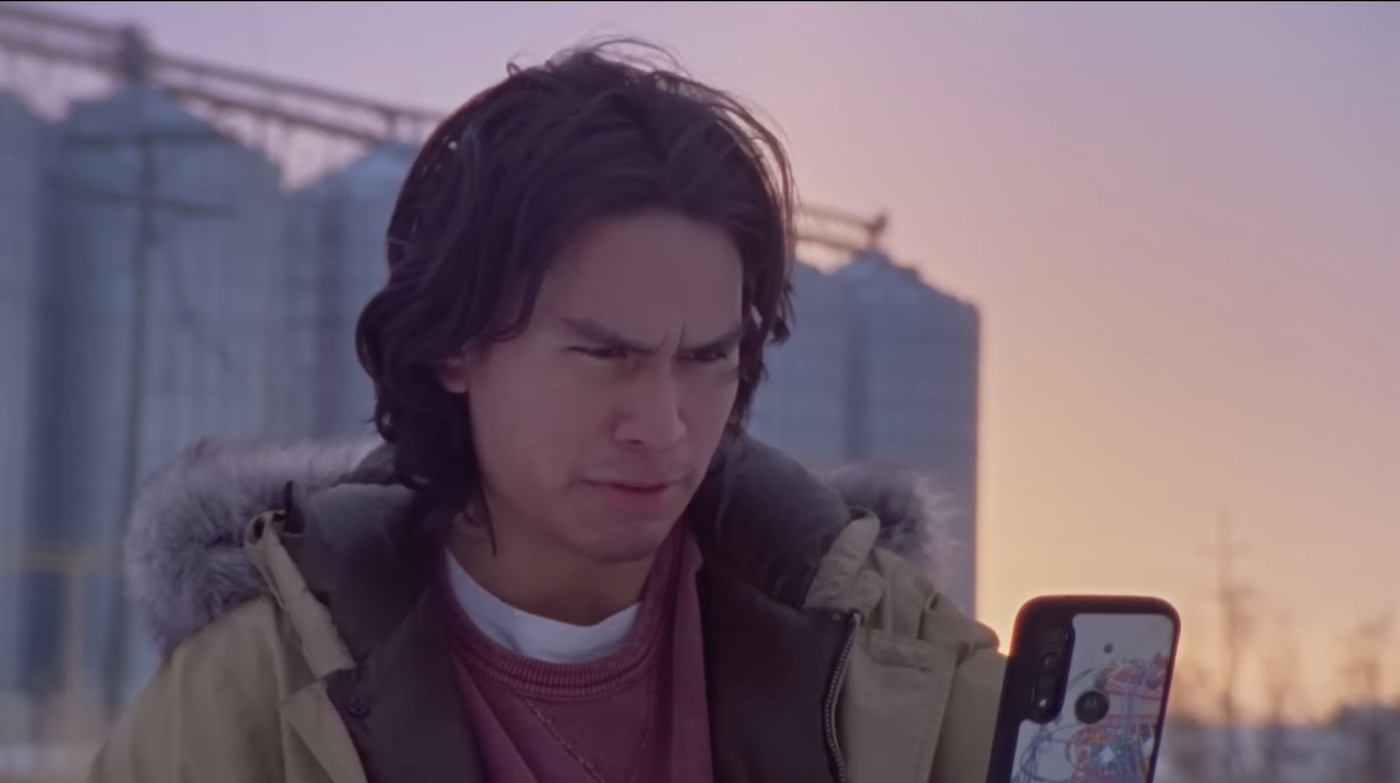
Michael, perhaps the most essential member of the team, is a young Native American who feels the weight of the injustices suffered by his people. He’s been investing his rage in desperate, devil-may-care activism: He studies and makes videos about the art of low-budget bomb-making. And if that isn’t enough to get his name on FBI watch lists, he also posts videos of his own violent confrontations with workers on North Dakota oil rigs. Played with simmering fury by Forrest Goodluck, Michael is the character who occasionally makes me feel that I’m watching a documentary instead of a thriller, even though his fierce eyes and his storm-tossed hair make him look like a mythic hero. He hurtles forward headlong, impatient, so that we believe he will try to pull off this mission all by himself if he doubts, even for a moment, the dedication of his co-conspirators. (Matt Zoller Seitz at RogerEbert.com aptly compares Goodluck’s screen presence to that of Michael Shannon, “an actor who can communicate that a character's mind is racing in a dozen directions even when he's handling whatever's right in front of him.”)
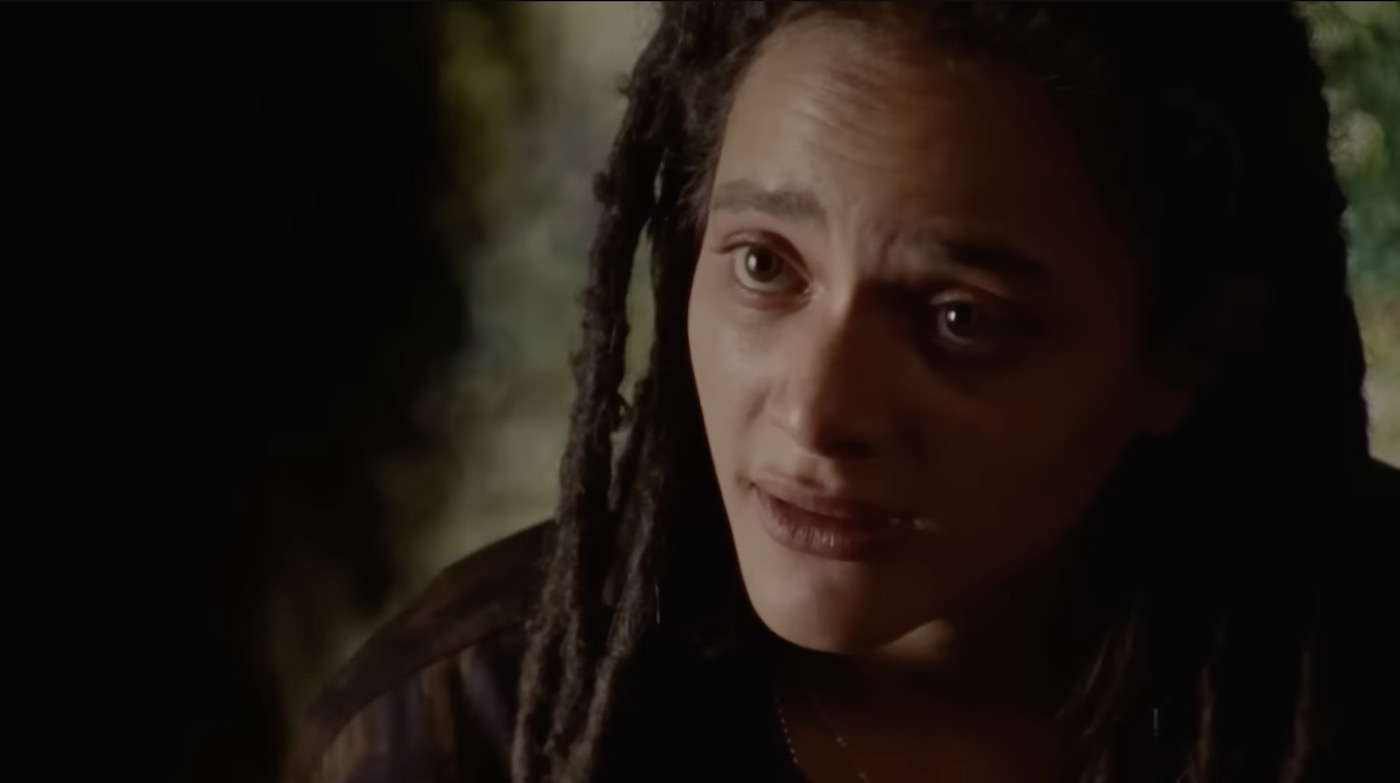
These characters, their plight, and their plan are all more than enough to make How to Blow Up a Pipeline an exciting ordeal of white-knuckle suspense and intellectual challenges. We’re invested. We want to see them succeed in shaking up the systems that have set humanity on a trajectory toward self-inflicted extinction. But do we want them to do so with violence, and with violence that is likely to get one or more of them killed? I rarely feel as conflicted watching heroes fight injustice as I feel watching this rebellion against the empire. But that’s because most movies make rebellions look too easy, too simplistic, too clean. The Good Guys of Star Wars who won my admiration in childhood now seem dangerously and deceptively simplistic, and so my generation’s storytellers, expanding on the Star Wars legacy, feel compelled to address more complicated ethical questions in necessarily messier sequels like Rogue One and The Last Jedi and in tangential series like Andor.
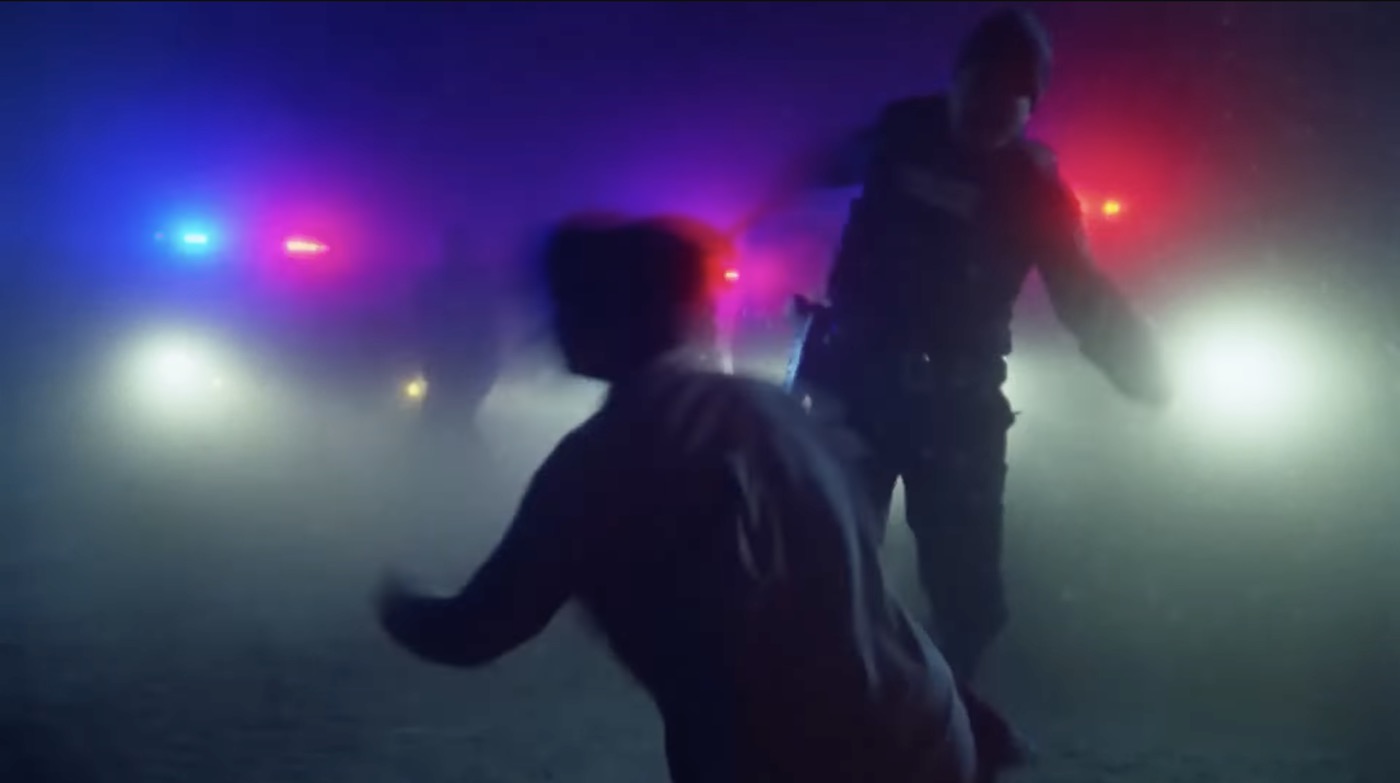
Unfortunately, How to Blow Up a Pipeline ends up feeling like it might not be grownup enough for its subject matter. I’m not talking about how it engages us with difficult questions; I’m talking about the artistry of its storytelling. It’s so difficult to pull off a movie like this without succumbing to the temptation to preach. The screenwriters — director Jordan Sjol and actress Ariela Barer — invest so much inspiration and energy into revealing the characters’ backstories and their suspenseful collaboration in setting up the explosives that the lack of forethought about what comes next becomes, in the final moments, painfully evident. What runs brilliantly for 90 minutes as an effective and thought-provoking adrenaline rush (as well as an X-ray and diagnosis of the rising anxiety prevalent in almost all of those 20-something and younger) stumbles at the finish line.
I find a similar sentiment in the Letterboxd post from Josh Larsen of Filmspotting: “How to Blow Up a Pipeline eventually sets aside the ethical debates its characters occasionally gesture toward to become its own political act, which feels somewhat at odds with the suspense trappings.”
Similarly, Michael Asmus at Letterboxd writes that
[A] call to arms feels lacking without an adjoined call to hope. Instead of letting the events play out and leave us to walk away weighing the costs, it confirms it's actions as good, and wants us to agree. There's some consequence, but no imagination for what's next. I hesitate to call it propaganda by any stretch, as there's artful moments which are surprising and affecting. But instead I left a bit let down….
Letterboxd’s own Mitchell Beaupre also acknowledges the film’s last-minute stumble: “There’s something anticlimactic about how the film concludes. Not that I’d want anything different to happen necessarily, but maybe certain reveals and tying up of all the threads was a little too abrupt and/or a little too clean.”
Indeed. After an hour and 40 minutes of excitement, it’s unfortunate that the film runs two misguided minutes further.
But I agree with all that Beaupre admires about it, including its spiritual connection to another recent film about this present darkness:
Not sure I’ve seen a film dig so effectively into the question of what we can do to try and make some kind of difference when at this point all hope seems so truly lost. First Reformed is the only one that really comes to mind and they’d pair well in that way, but while Schrader’s film takes the existential approach, How to Blow Up a Pipeline is dirty, on the ground, focusing on people who are really trying to do something, anything with what little time we have left to actualize change.
So, while I highly recommend this film as one of 2023’s most impressive, I also think it’s imperative that we follow it with rigorous conversations, exercising conviction and conscience. Is a violent rebellion against a wicked empire the only way forward? Is a refusal to blow up pipelines a sign that we have given up, and that we’re willing to enable the enemy?

I turn to J.R.R. Tolkien, who survived what was arguably World War One’s most horrific battle. He believed in the sovereignty of God as I do. And in The Lord of the Rings he does not condemn armies that march out in force against a world-destroying warlord. Indeed — he makes the focus of the mission an act of violence against the enemy’s most destructive tool: He has heroes risk their lives to destroy the Ring of Power. But Tolkien also acknowledges that no one really wins at war. His narrative is about how his most innocent and virtuous hero is corrupted by evil on the very path to blow it all up. This is why the saga seems haunted, burdened, fashioned as much to be a lament over the terrible choices available to us in resisting the Enemy. He wrote in a letter in 1956: “… [O]ne must face the fact: the power of Evil in the world is not finally resistible by incarnate creatures, however 'good' ….”
But then he added another clause — one in which abides all of his hopes for salvation: “… and the Writer of the Story is not one of us.”
Indeed, I must find my ultimate hope and comfort in the grand design of grace. We may destroy the world God gave us. And we may do more harm than good in striving to rid the world of its cancers and trying to strengthen the things that remain. But even if Planet Earth becomes uninhabitable, there is a more expansive story — one in which even death is defeated. We may have to turn to fantasy stories and fairy tales to get a taste of it, since we cannot realize it here and now. But there are reasons such stories carry the ring of truth. As evil empires devour themselves in their madness, there is an as-yet-to-be-revealed resurrection on the way, one we cannot yet imagine because its only precedent is what we’re celebrating here, today, as I write this on an Easter Sunday.
So, while I stop short of a whole-hearted, clear-conscience endorsement of this movie’s conspiracy itself, I cannot condemn the rebellion — or these beautiful rebels. The destruction they unleash is respectful of human life, not murderous. Their cause is just, their arguments compelling, their methods meaningful. In their heartbreak and desperation, I hear the poetry of David Bowie:
And these children that you spit on
As they try to change their worlds
Are immune to your consultations
They're quite aware of what they're going through...


